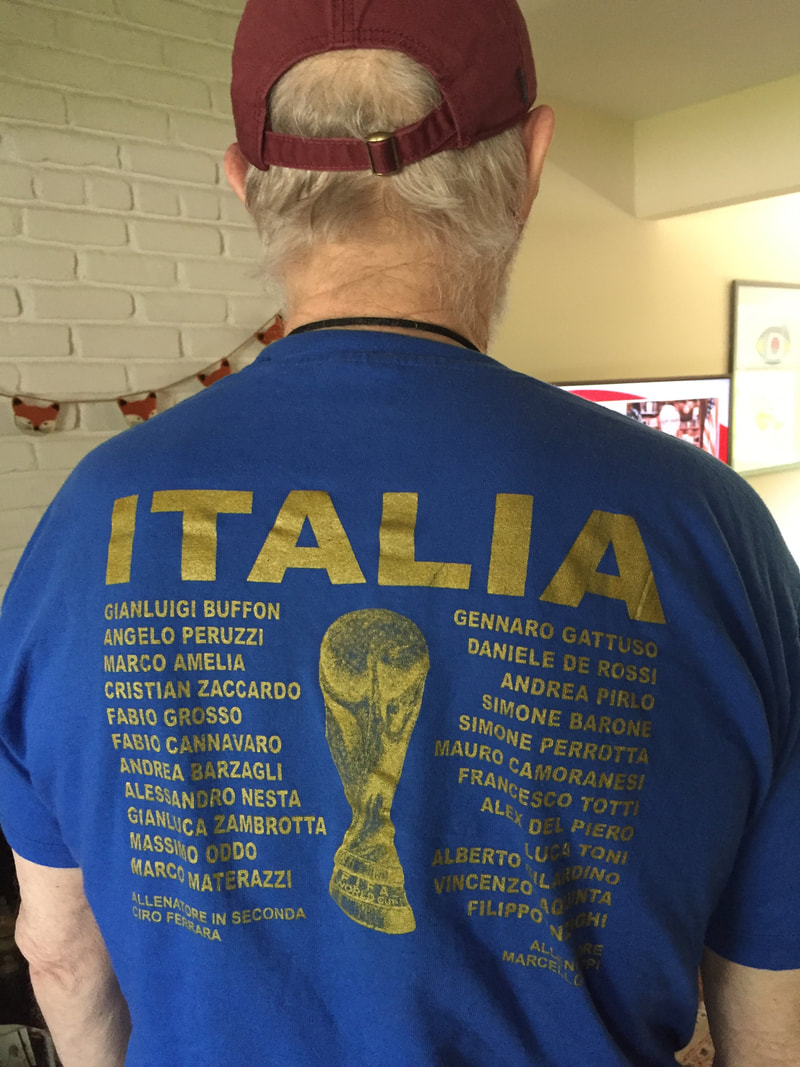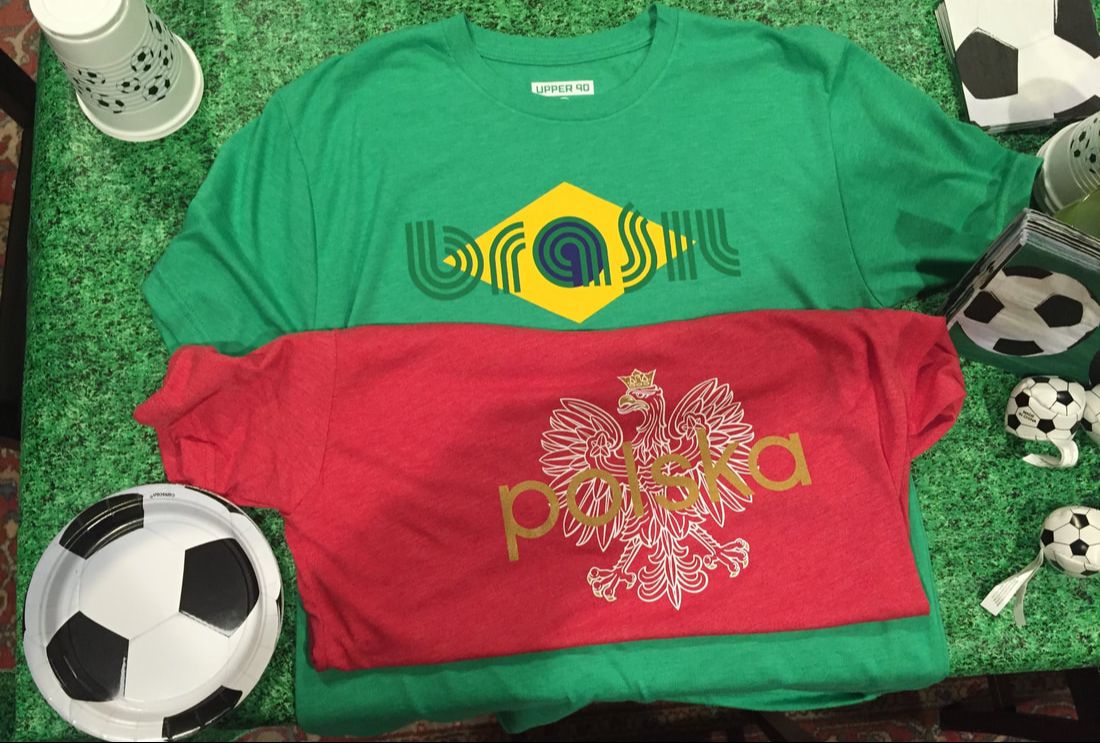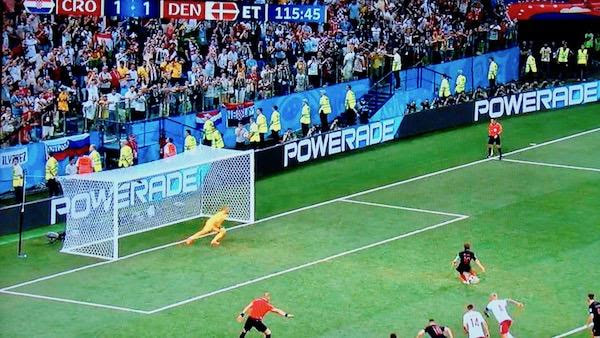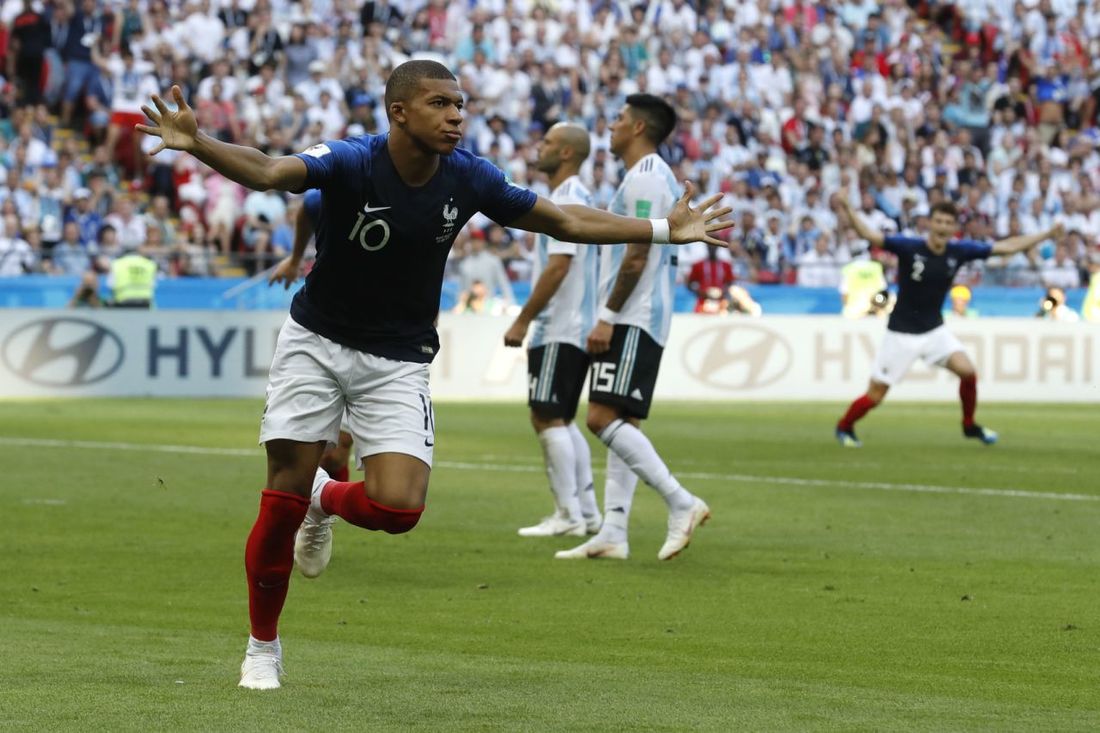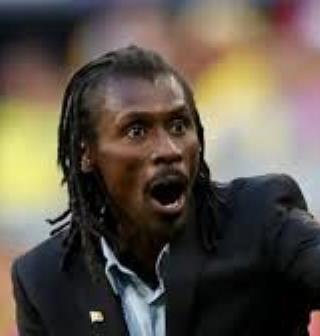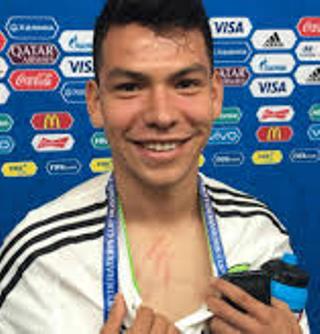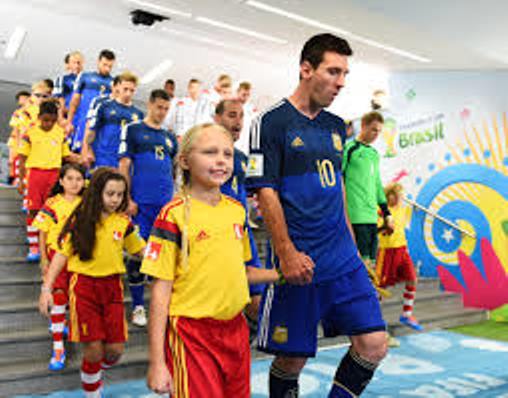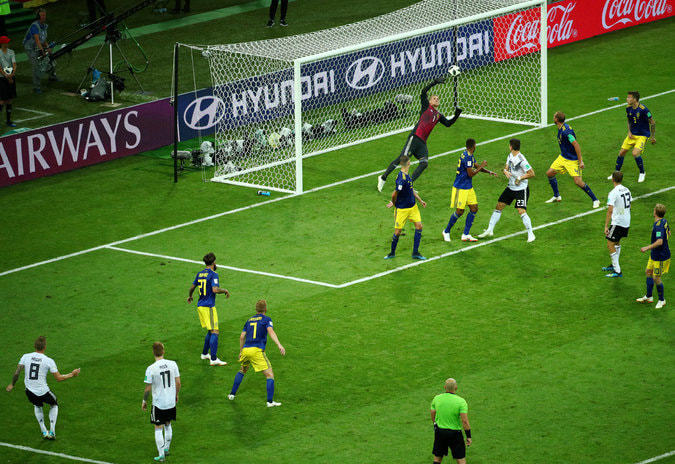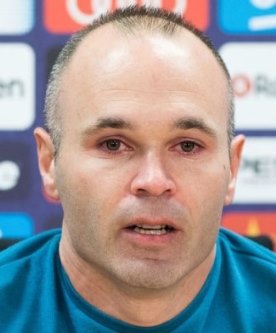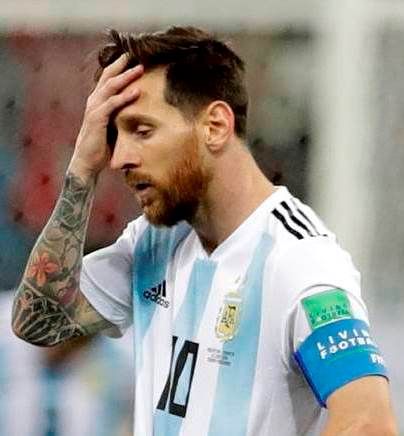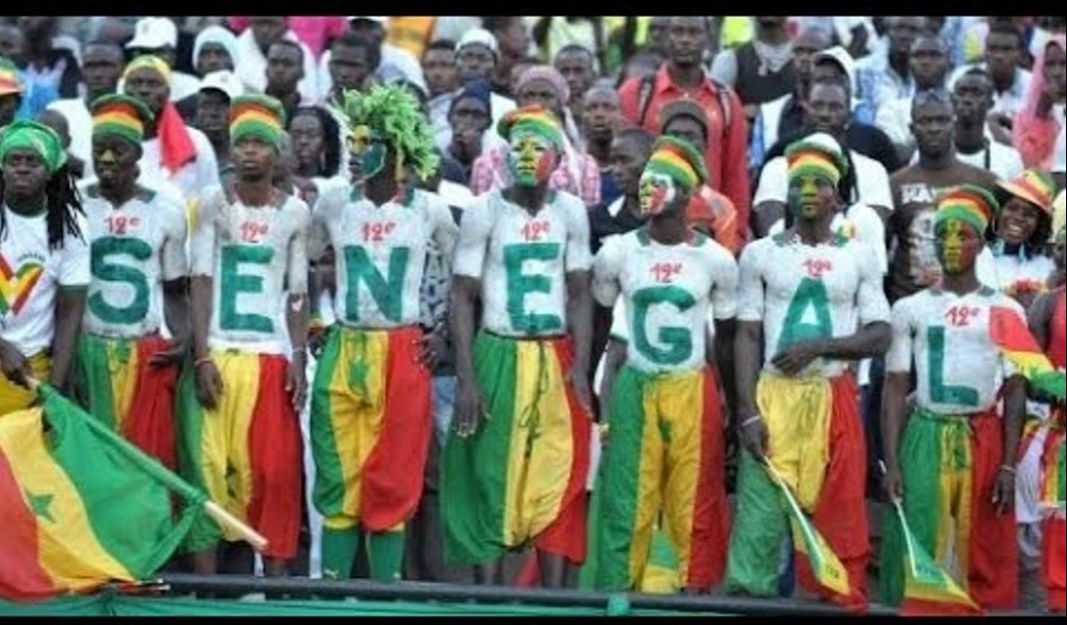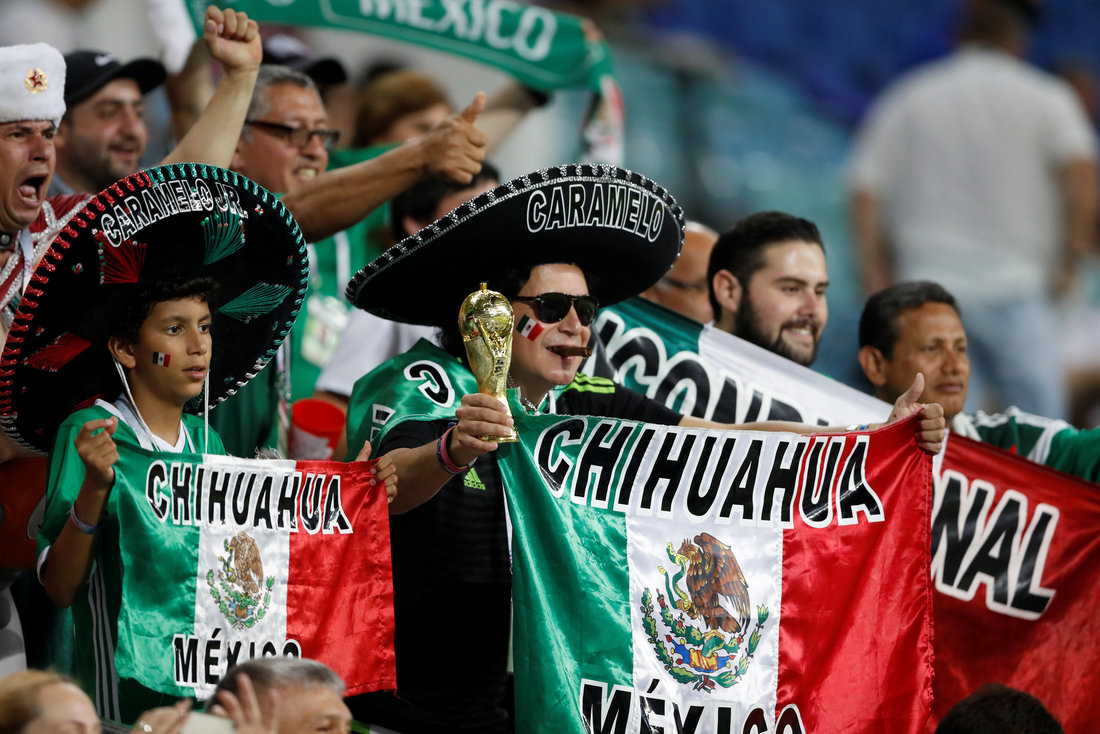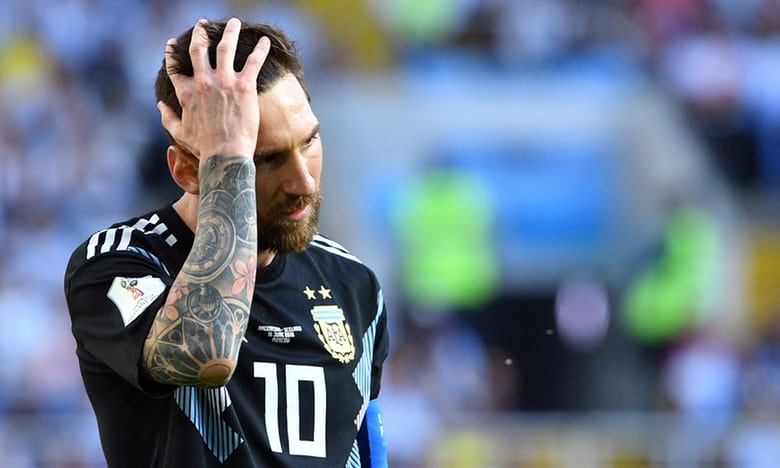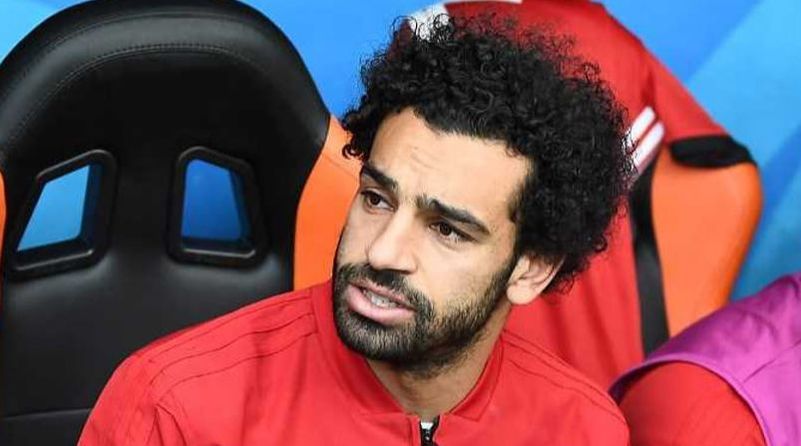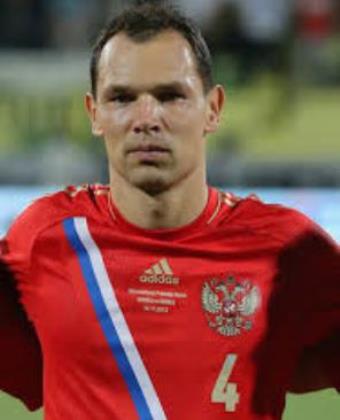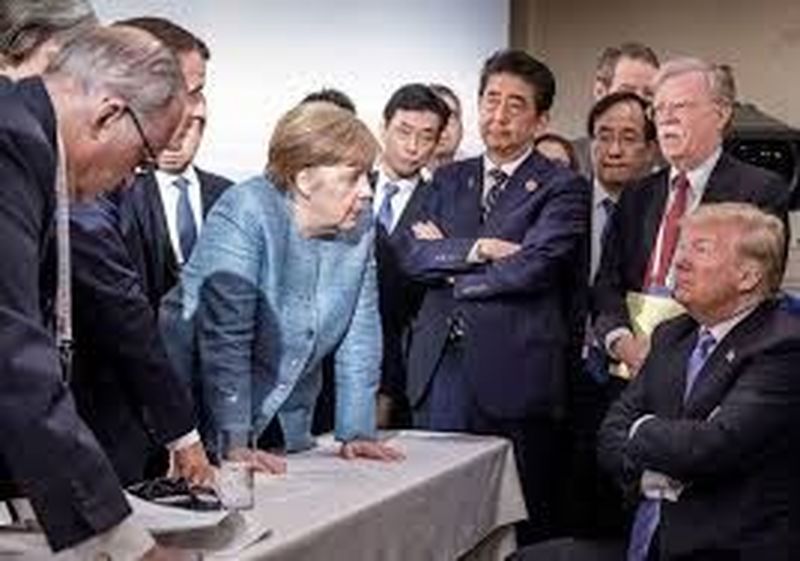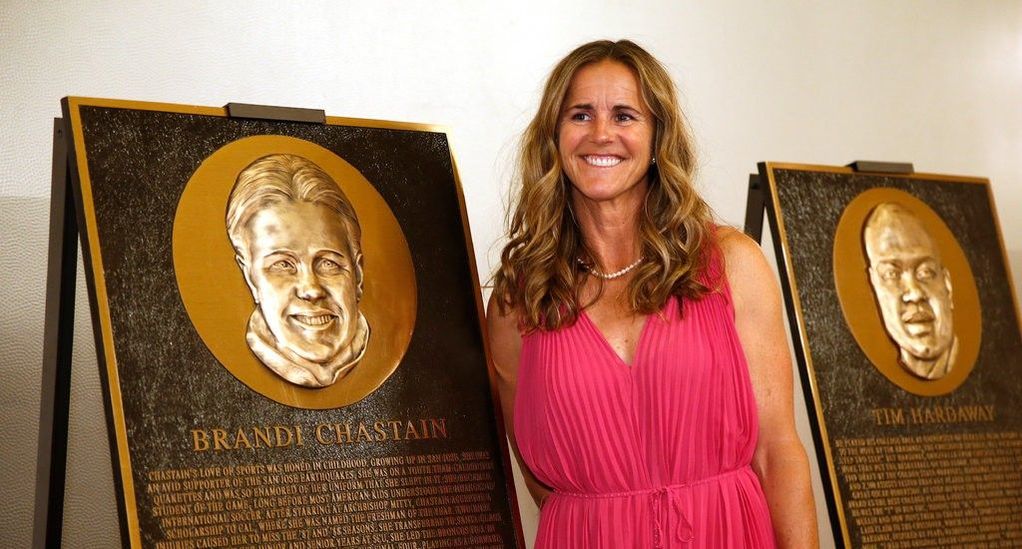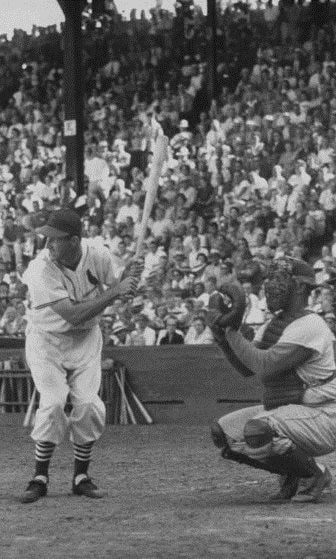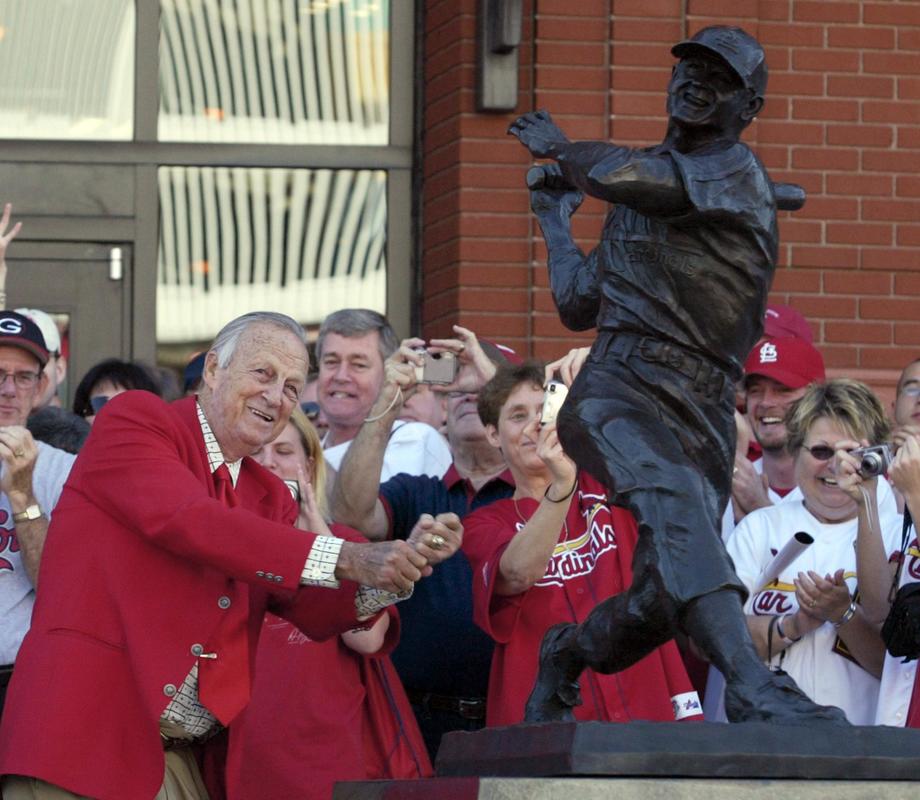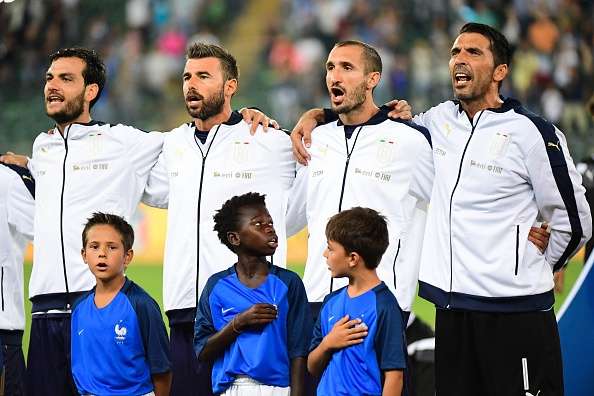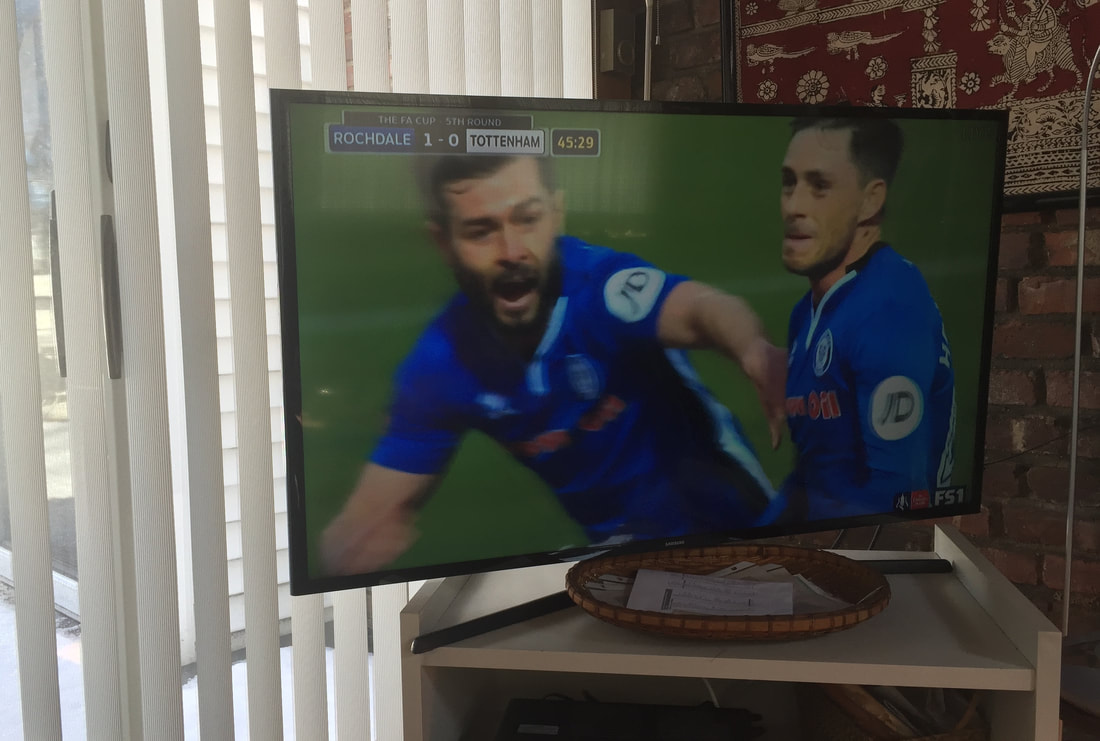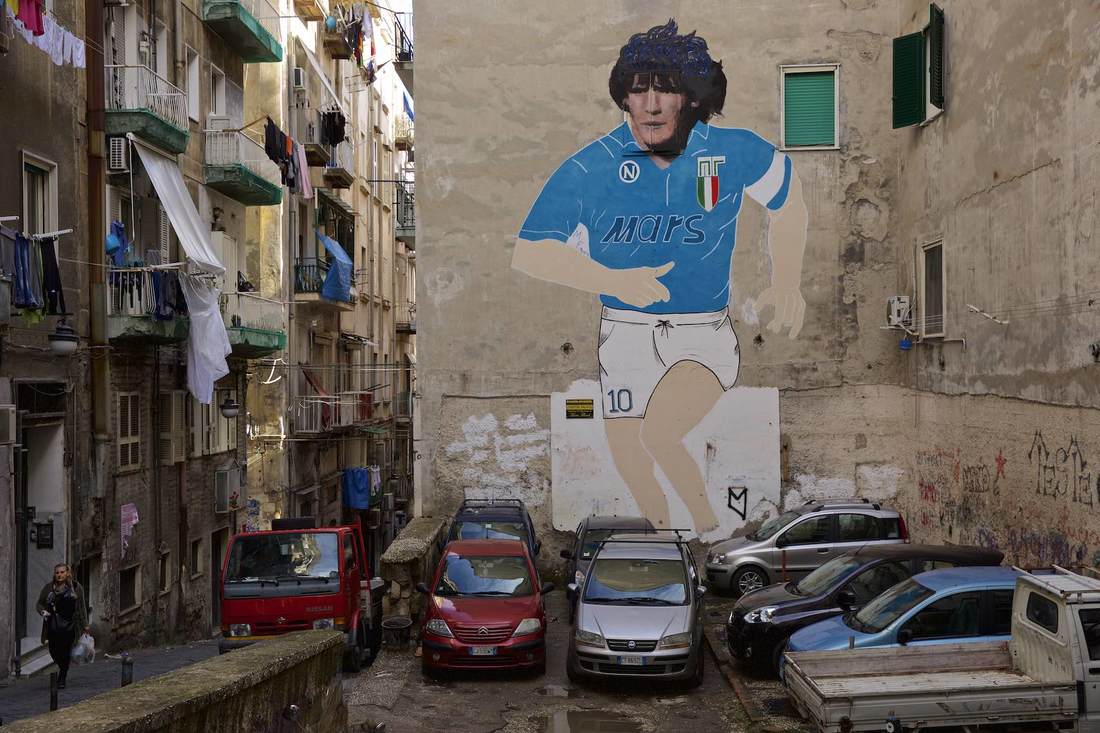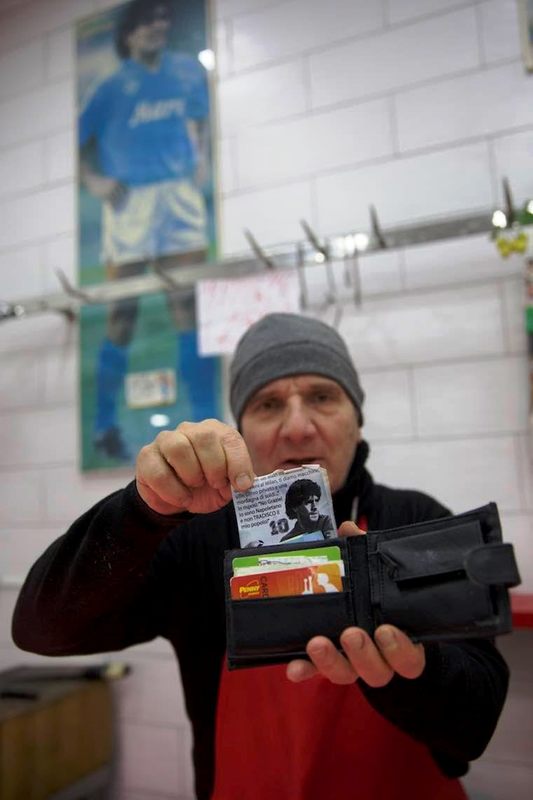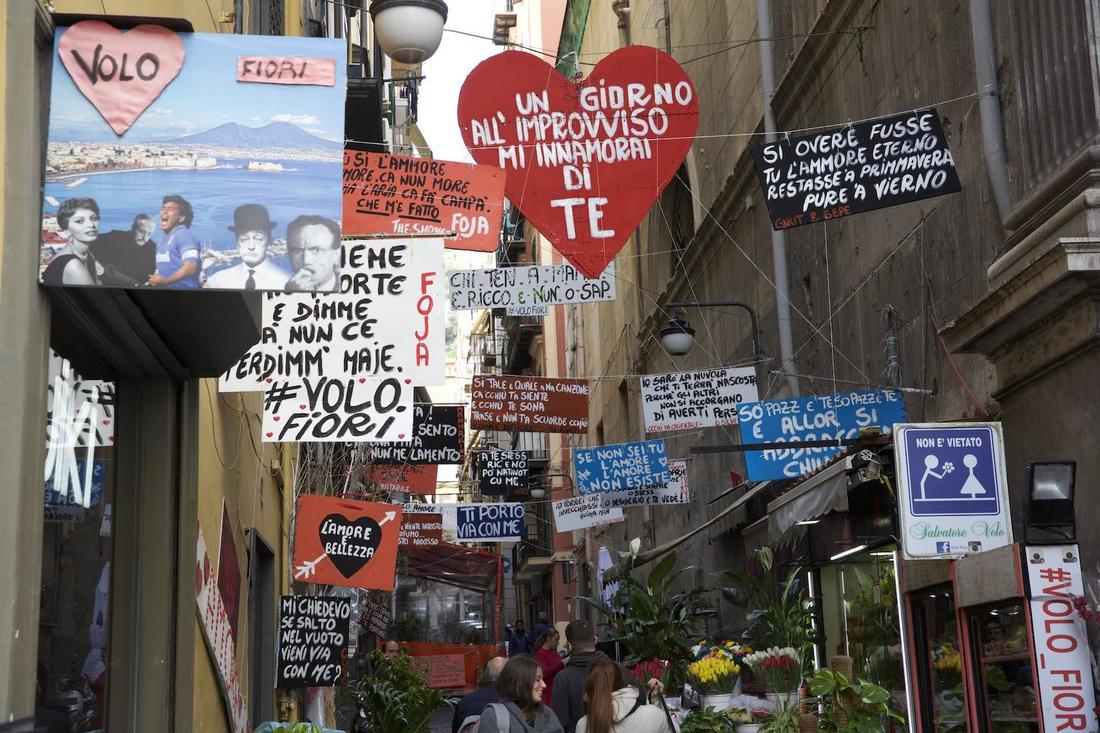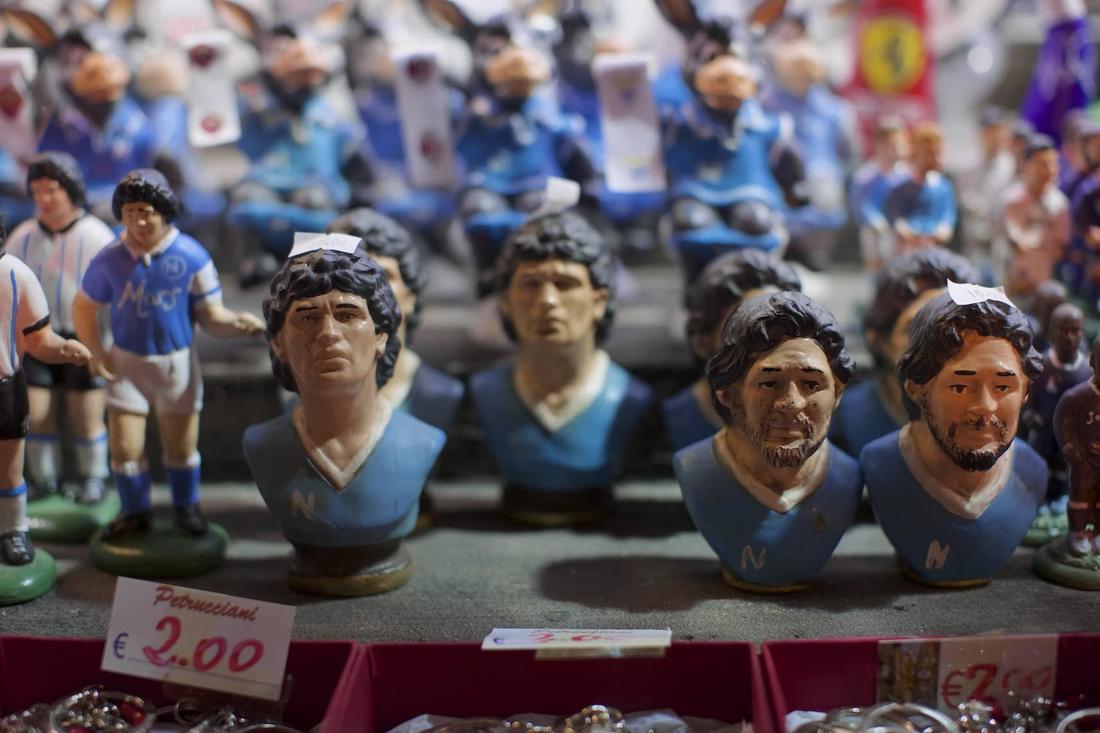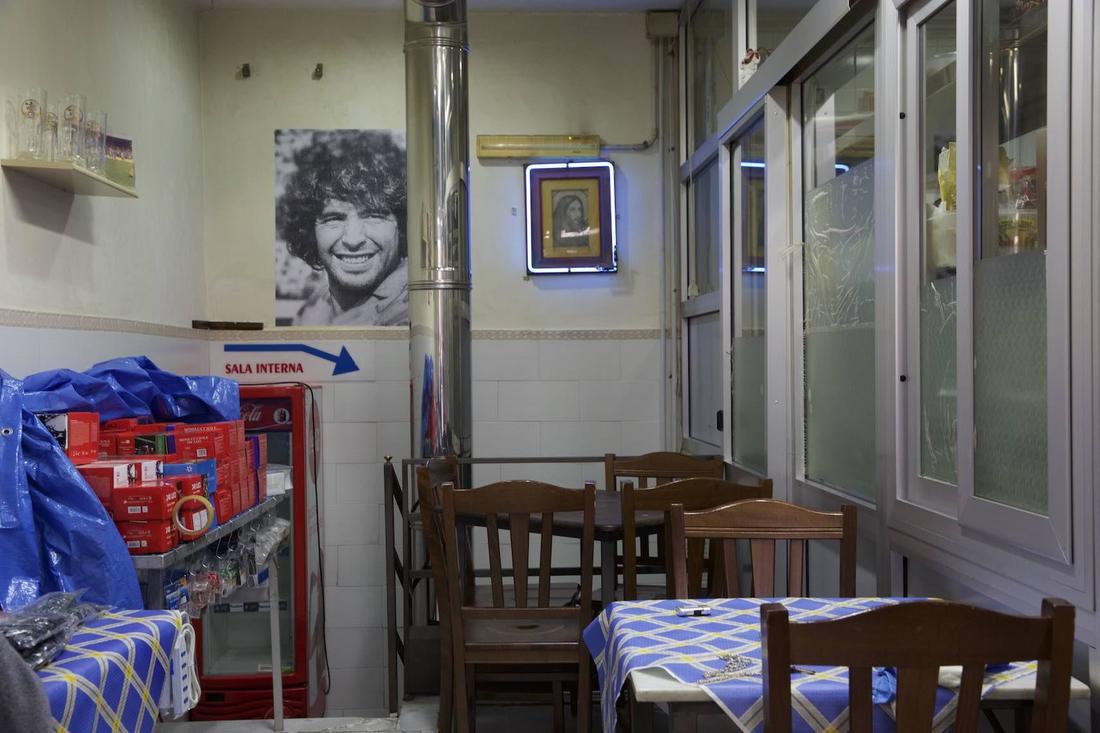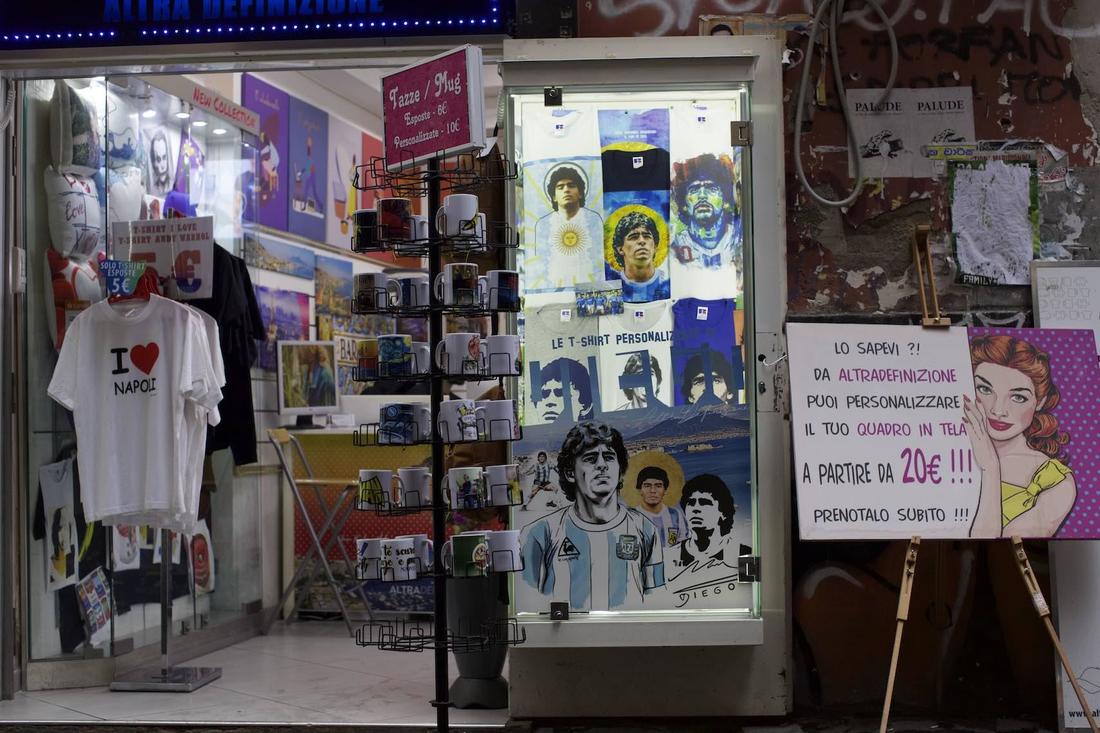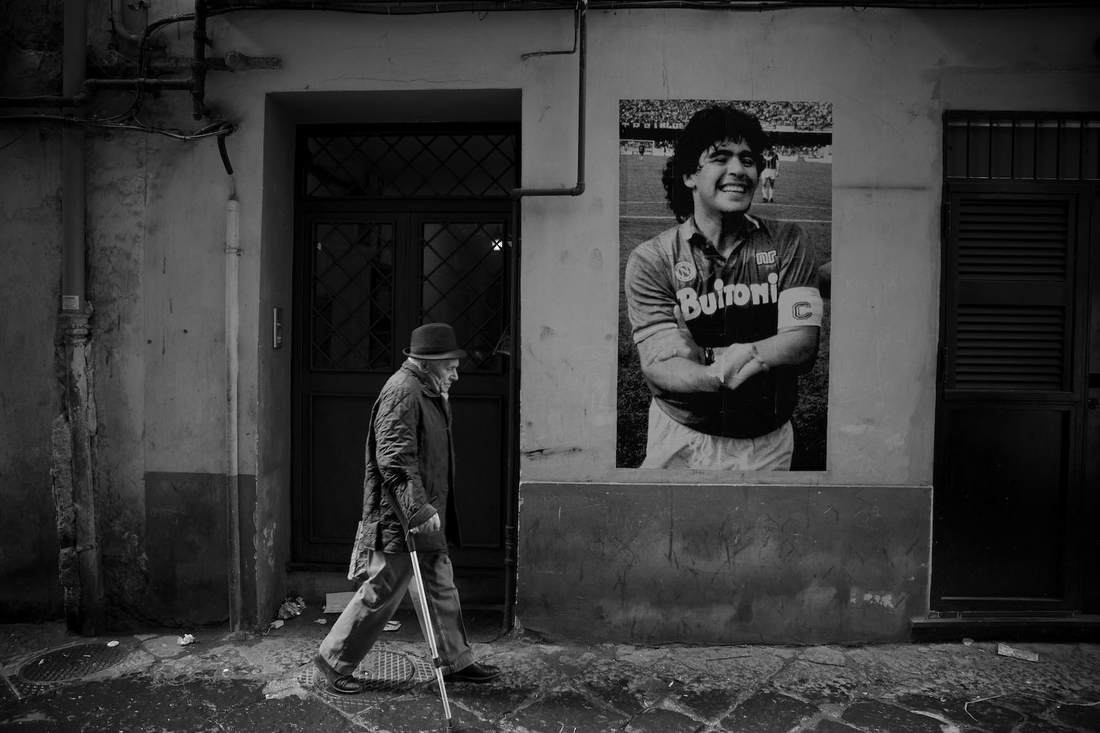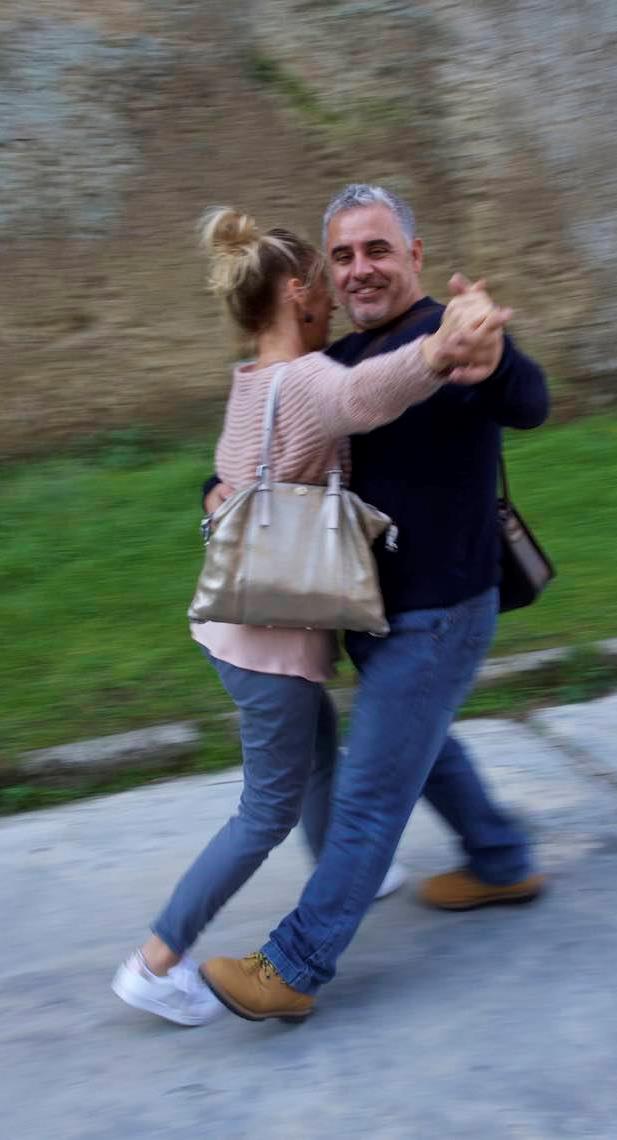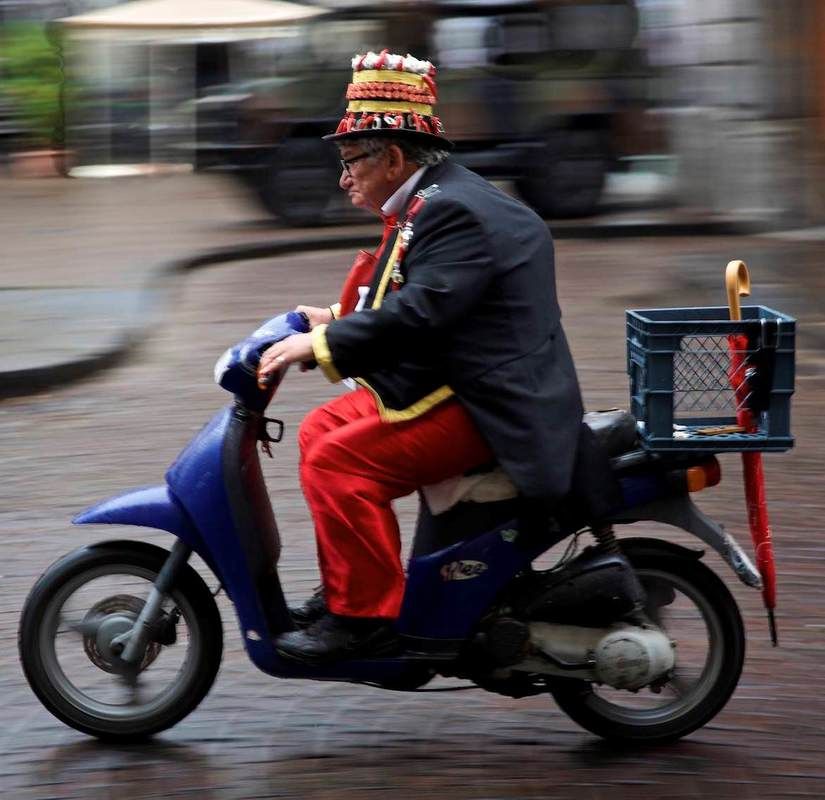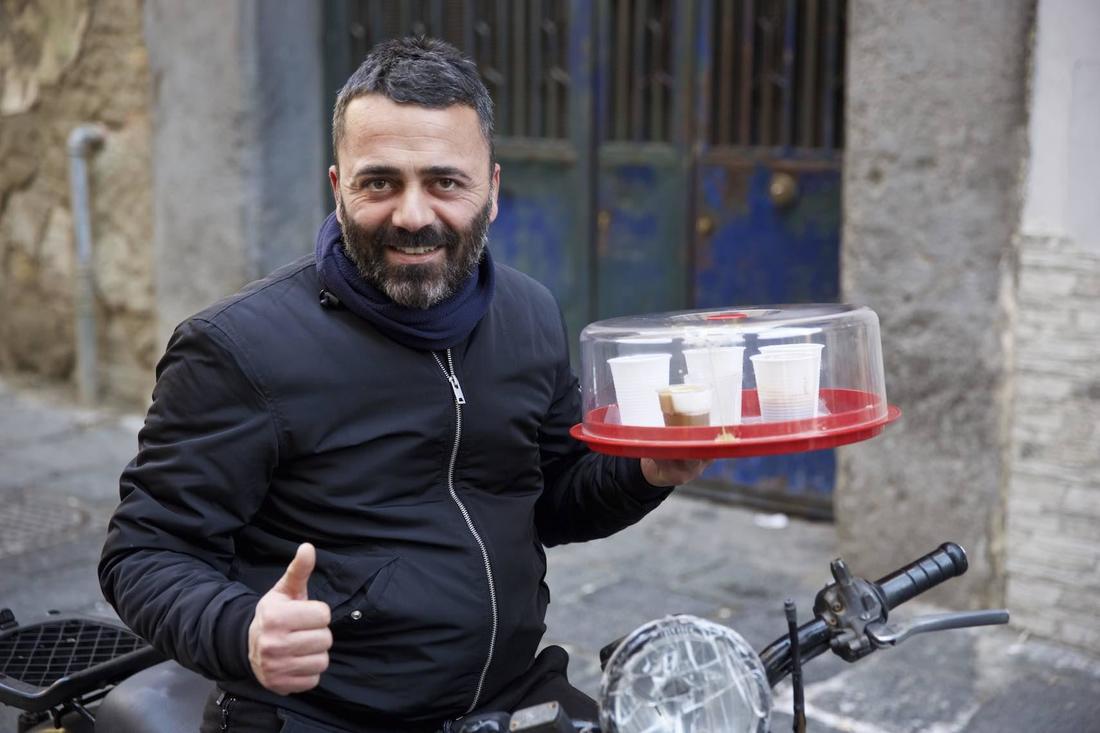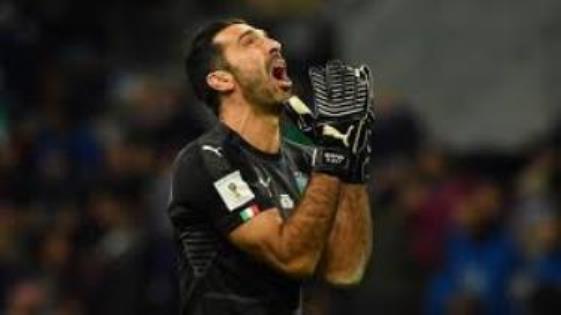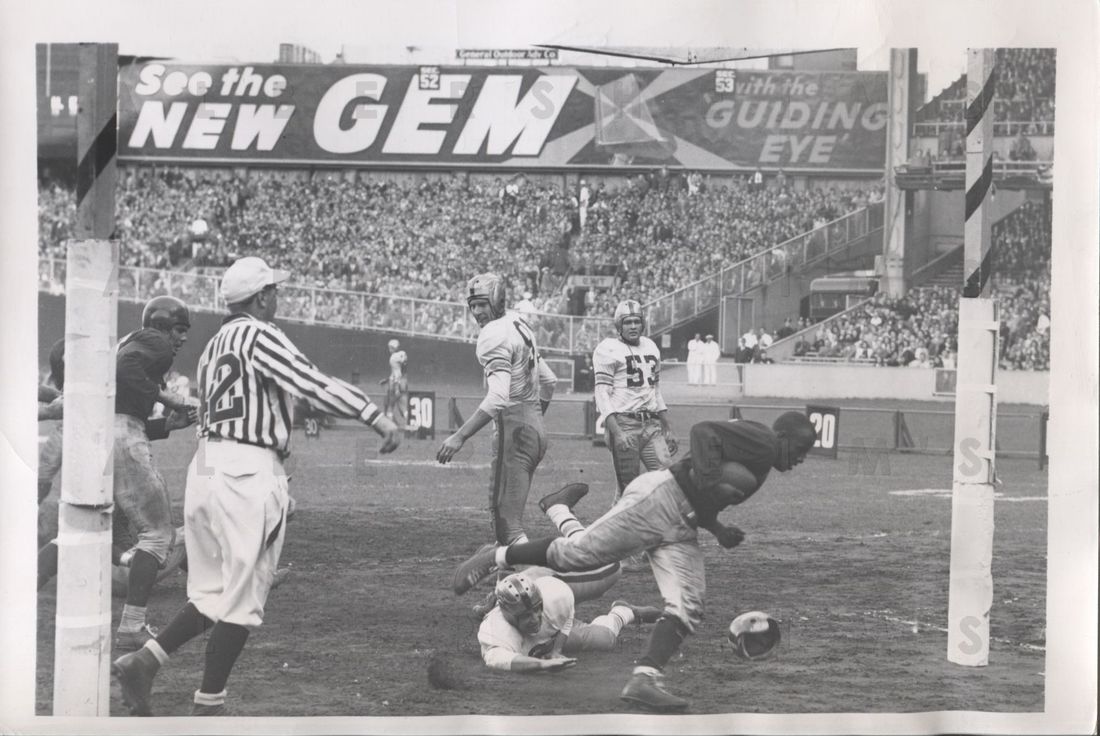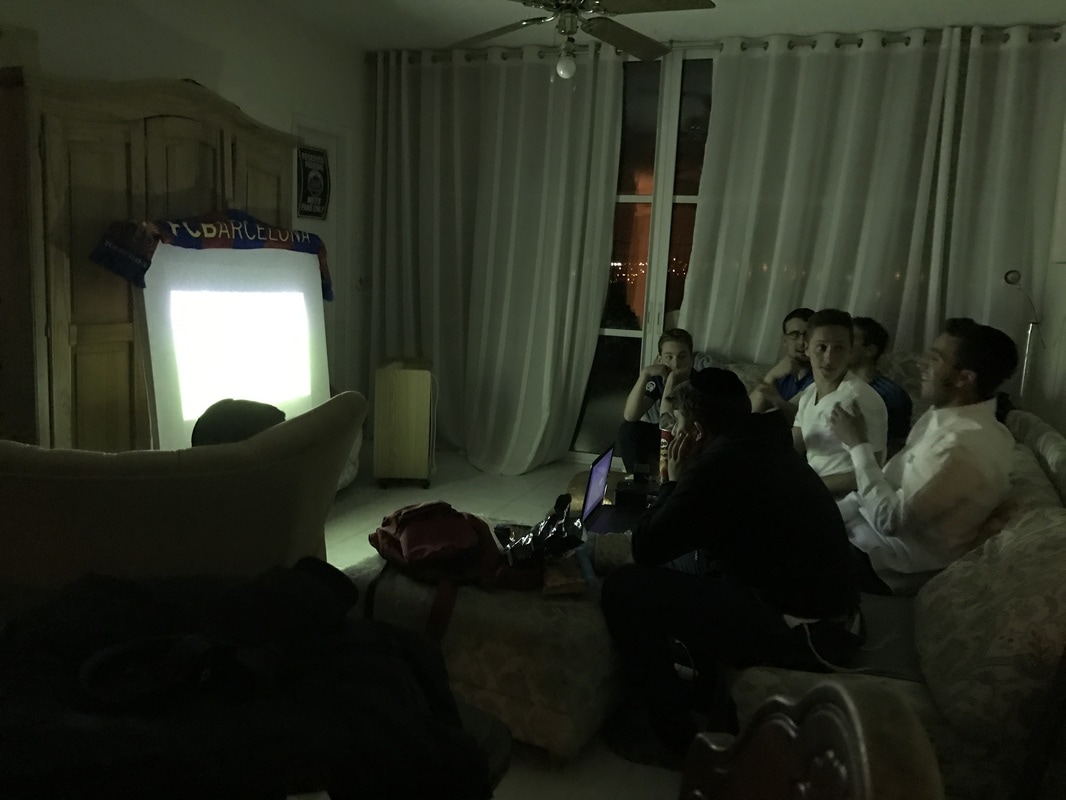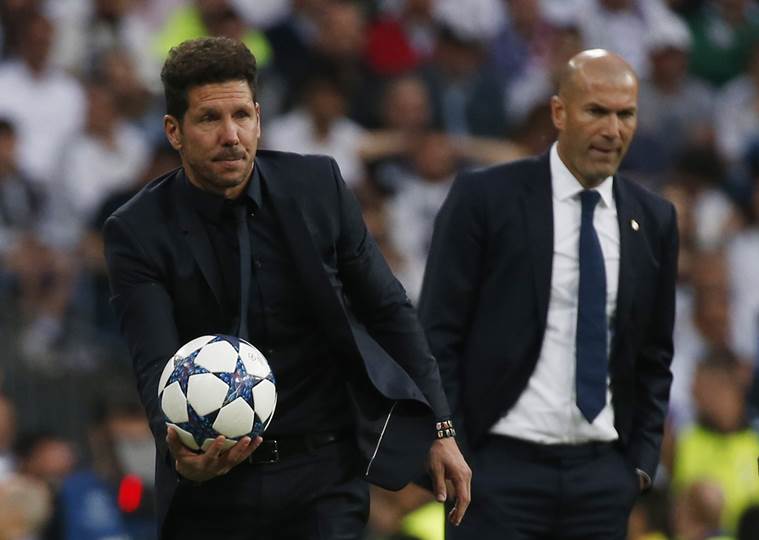|
It seems like yesterday but it was 20 years ago last Sunday when Slava Bilic did his corny little death rattle on the lawn at Stade de France.
He had been tapped lightly on the upper chest by Laurent Blanc of France but he fell to the grass like a man hit by a baseball bat – clutching his forehead. That’s how badly the pain was radiating. The ref went for it and showed Blanc a red card, which meant the steady French defender would miss the next match, which, as a result of the French victory, turned out to be the World Cup final. Blanc was on the sidelines, agonizing, when Zinedine Zidane played the most beautiful final in World Cup history in a 3-0 victory over Brazil. In those days, FIFA executives were so busy stuffing their gunnysacks that they had no time to update their product. Nowadays, the ref would hear a voice in his earphone and would trot over to the little VAR unit at the edge of the field to see for himself that Bilic had faked it. That was the last time Croatia was in the semifinals. On Wednesday they will be playing England in the second half of the all-European Union semifinal, after France meets Belgium on Tuesday. Floppers beware. The two men were familiar figures in world soccer. Both played and coached all over the place, intersecting on occasion, like 2011 when Bilic coached the Croatian national team and Blanc coached France and they met in a friendly. The men chatted amiably, but if Bilic has ever apologized, it is between the two of them. At the time, Bilic – a lawyer, by education -- said he was afraid he would get a yellow card for faking, and miss the final, so he exaggerated his motions. After that match, he said he told Blanc he was sorry for causing him to miss the final. “I guess I should have hit him right there,” Blanc said. Flopping is still a plague on the sport, but enlightened physicality in the scrum is done by everybody, both sides. (Where were the Croatian defenders on the late header by Russia on Saturday? All flat-footed, as if stricken by Putin nerve gas.) Bilic employed the tactics of the sport, for better or worse. In the age of VAR, he just might be rewarded with a card for bad acting. Even FIFA, with its Qatar World Cup and its threat to hold a bloated 48-team extravaganza in 2026 gets something right, once in a while. My 1998 column on the Bilic flop is here. It begins: "I once met a man who had died 100 times." https://www.nytimes.com/1998/07/10/sports/sports-of-the-times-in-soccer-flopping-is-an-art-form.html For other information on the Bilic-Blanc meeting: https://en.wikipedia.org/wiki/Slaven_Bili%C4%87#West_Ham_United_2 https://en.wikipedia.org/wiki/Laurent_Blanc http://www.goal.com/en-india/news/2292/editorials/2011/03/29/2416207/it-was-laurent-blancs-fault-he-missed-the-1998-world-cup https://dailyfootballshow.com/remembering-belgium-france-england-and-croatias-last-trips-to-the-world-cup-semi-finals/ So many loyalties, bouncing around on Saturday in the forlorn USA.
We all have our ethnic ties, our favorite superstars, the teams that caught our fancy, our memories of World Cups past. At a family gathering, one bloke from Deepest Pennsylvania wore a t-shirt honoring home-boy Christian Pulisic, who just might be the next Ryan Giggs, the next George Weah. (You know why.) One wannabe scugnizzo in our group wore an Italia 2006 t-shirt, in honor of the Year of the Head Butt. It's all we had. Then all of a sudden in the second match, there emerged a deep and nearly universal feel for the homeland -- well, somebody's homeland. Croatia! Yes, I was surrounded by people rooting for Modric, for Raketic, for the hamstrung keeper. Because I am a little slow, I needed an explanation. I couldn't muster up any hard feelings for Russia, having spent three weeks in Moscow during the Goodwill Games of 1986 and feeling the warmth and passion and generosity and culture and history of the people. It's not the people, I was told. It's Putin. Or more specifically, his new best friend. A cheer for Croatia was a thumbs-down for Trump and his man-crush on the swashbuckling bare-chested heckuva guy from Russia. So here are my reactions to the last two quarterfinal matches: England 2, Sweden 0 The team that kept Italy out -- no hard feelings -- and then beat South Korea, Mexico and Switzerland in the World Cup -- did not have the disruptive force against England. England, disparaged by its own fans for fielding many second-raters from Premiership squads, does have Harry Kane, the hardest-working man in show business (homage to the late James Brown.) Kane is more of a constant threat than many of the superstars now resting at beaches and cottages around the world. Harry Maguire seems able to stick his noggin into the scrum at the right moment, the right angle. It's fun to watch a squad blend on center stage. Croatia 2, Russia 2 (Croatia, 4-3, Penalty Kicks) Russia went as far as it could, on the stimulus of being the home team.When the players encouraged the home crowd to cheer louder, they were acknowledging the lift they got from the noise. Never mind the jokes about Putin fixing the World Cup. There was no poison smeared on umbrella tips or somebody's home doorknob. (That we know of.) Credit the players -- and the fans, who reminded me of emotional people I met in my three weeks there. Croatia's play is a tribute to the ability of small nations (Belgium included) that can nurture skilled and superior athletes and then blend them when they regroup for national-team play. I am increasingly a fan of Luka Modric, the quiet, roaming general who plays back, then arranges the pattern, and often takes the shot himself. He grows on you. On to the semifinals. I assume Trump harbors grudges against all four survivors, for something. I was watching the England-Colombia match with three friends, all of whom root for England. (Two for Arsenal, one for Chelsea, a whole history of very Brit jibes, way above my head.) The match teetered without a score, and I could hear the misery atoms starting to collide, when one of my pals burst out with: “Meat pie, sausage roll, “Come on England, give us a goal.” Say what? Yes, my friend said, they sing that at England matches. I’ve done most of my sports-watching in England in the media tribune at Wimbledon, listening to English writers supply dialogue (most of it scabrous) when satellite members of the Royal Family hand out the hardware for a championship, chatting up ball persons and line officials and groundskeepers and other commoners. This little lyric was classically English, like London cabbies, with The Knowledge, all addressing each other as “John,” or Ringo, trapped at the bottom of the sea in “Yellow Submarine,” muttering, “I want me mum.” My friend didn’t know all the lyrics, but I found a video featuring Grandad Roberts and his son Elvis, glittery costume and all. The lyrics indicate that the singers slur the second line, into: “Come on England, gi’s a goal.” It also appears that the chant began with supporters of the Oldham club.in Lancashire (My wife and I recently discovered our family lines both have some roots around Oldham. Maybe footy doggerel is in my genes.) This song, if you want to call it that, proves to me that no matter what disaster awaits this current England squad – 1966? Oh, come off it – England will always be hunkering in the ruins, in the Underground, in the rain, defiantly singing “You’ll Never Walk Alone,” or better yet, “Meat Pie, Sausage Roll.” * * * As for the quarterfinals, my feeling is, you can root any way you want, but whatever happens will be all right. I like France over Uruguay because of Kylian Mbappe coming of age, but as an old guy myself, I appreciate the 71-year-old Uruguay manager, Óscar Tabárez, using a cane because of neuropathy or Guillain-Barre syndrome. I’m rooting for Belgium because of my mother’s two Irish-Belgian cousins who gave their lives in the Belgian Resistance. But their opponent is wearing the same kit that Sócrates and Ronaldo wore, and that works for me. Who really roots against Brazil? Ever? I like Croatia because wiry Luka Modric’s expressive features and offensive flair remind me of Mike Bossy, the great wiry marksman of the old New York Islanders of Stanley Cup glory. (Bossy was a class act when I covered that club.) On the other hand, Russia’s surprising team with its hard work and clutch skills, has forced politics out of the conversation. Finally, I think Sweden has a way of nullifying other teams, and could surely do it to England. I’ve seen Lineker and Gazza and Beckham and Rooney all fall short; hard-working Harry Kane could disappoint, also. But it’s hard to ignore dogged fans who stand in dismal weather and chant foolishness like: “Meat pie, sausage roll, “Come on England, gi’s a goal.” * * * Then there's this: The other Arsenal fan -- whose family actually worked in the arsenal - - sent it. (Vindaloo is an Indian curry, popular after closing time.) France 2, Uruguay 0: The keys to the match were, as Tony Meola pointed out so well on Fox, the fingertip dive by Lloris near the end of the first half and the flub by Musler of Greizmann's knuckling cannonball early in the second. But....the other key was the man who wasn't there, Edinson Cavani, so potent earlier but not able to go because of a calf injury. His absence reduced Suarez to a spectator, out for a jog, not even able to muster up a decent flop, or a bite. France has such a complex and varied team. The World Cup audience, perhaps unfamiliar with most French players, can appreciate them more, game by game. Je me souviens de 1998. J'étais là. Belgium 2, Brazil 1 Maybe the fuss with Neymar is only a sideshow. Beyond the grappling and the histrionics, Belgium was the better side – more stars, more options, more skill, more composure. Even when Kompany and others looked gassed, they held together. Surging teams are fun to watch in any extended playoff. As for Neymar, there is a tendency -- in basketball and hockey, at least – to protect the stars, keep a control on the goonery. But what do you do when some soccer stars have incorporated diving and feigning into their vast skills? He seems to have psyched the officials into suspecting he is faking it all the time – not a great result in a sport in which defenders know how to send an attacker sprawling, with the right use of speed and weight and martial-arts tactics. Neymar should go back and look at the great documentary of the 1966 World Cup -- the Soviet Union hacking away at Hungary, North Korea hacking away at Portugal. (Make your own jokes.) Anyway, the flopping and hacking seem normal to old World Cup hands; to intelligent new eyes, it may seem like pro wrestling. (Paul Gardner is my personal Johnny Appleseed for soccer; he brought his love and knowledge and blessed testiness to this savage land, and continues to write brilliantly in Soccer America. I hope I am allowed to reproduce their work; this is what Soccer America does....every day.)
https://www.socceramerica.com/ Monday, July 2, 2018 VAR totally fails to seize its chance for glory by Paul Gardner If ever there was a tricky soccer situation that was waiting to be solved by VAR, surely it was the problem of goalkeeper movement at penalty kicks. Rule 14 is sharp and clear and brooks no misunderstanding: “The defending goalkeeper must remain on the goal line, facing the kicker, between the goal posts until the ball has been kicked.” The goalkeeper must stay on the goal line. He is not allowed to move forward (though he can dance alongthe goal line if he wants to) until after the kick has been made. The difficulty with that is that it requires one person -- the rules give the job to the assistant referee -- to be aware of two actions taking place 12 yards apart at the same instant. Already a difficult assignment, the rules then make it virtually impossible by positioning the AR on the goal line, where -- by looking straight ahead of him he has a clear view of goalkeeper movement, but at best only a slight marginal view, at the fringe of his field of vision, of the penalty kick taker. The AR is being asked to do the impossible. So a compromise has been adopted by the referee and his AR. The goalkeeper is allowed to take one step forward without being penalized -- simply because the AR -- with probably only one second at his disposal -- cannot hope to judge whether that step forward was made after the kick was taken, as it was taken, or before it was taken. Like any compromise, it is far from perfect, but it has one over-riding advantage: it is practical, it works. And like all compromises it is open to abuse. Once goalkeepers know they will not be penalized for that first step, their instincts tell them to make the step as early as possible. This they have done, and by and large they get away with it. No call. (No special shame attaches to goalkeepers over this -- it is, I think, part of every player’s nature to push the rules to the limit, and beyond, to find out just how far they can go). Three major European titles have been won in the past decades by flagrantly illegal goalkeeper movement during shootouts. Not even the defeated teams have protested. The compromise has evolved into a conspiracy of silence. What was once acceptable has become objectionable. A compromise to make the rules work is now a subterfuge to undermine those rules. Now arrives VAR, with everything necessary to set things aright. An immediate review of replays showing both kicker and keeper at the exact crucial moment. One can say, with total truth, that for this situation, VAR has rendered the AR totally irrelevant. His viewpoint is not needed now, VAR can quickly do everything. During the Croatia-Denmark game, it had the perfect opportunity to do just that. It failed calamitously. So atrociously comprehensive was its failure that I can’t even say it made a mess of things. Its failure was simply that, given the perfect opportunity to prove its value, it failed to do anything at all. The game had been a rather grim, frustrating affair. Croatia, capable no doubt of playing the better soccer, rarely managed to do so. Denmark played the spoiler role to perfection and obviously rattled the Croatians. The game lumbered into overtime and with just four minutes left, referee Nestor Pitana of Argentina awarded Croatia a penalty. Luka Modric stepped up to take the kick -- and Denmark’s goalkeeper, Kasper Schmeichel moved early. But this was too early, too noticeable. Sitting here in New York I was immediately sure this was excessive. Not just me -- I have checked with journalist colleagues watching in England, in Italy, and the USA -- all three tell me that their immediate reaction was the same as mine: Schmeichel had moved way too early. Schmeichel made the save and was duly praised for being “brilliant.” Neither referee Pitana nor his AR saw anything wrong. No appeal was made to VAR. The official FIFA “VAR Handbook” specifically refers to “Penalty Kicks and Kicks from the Mark,” stating that “The Referee can initiate a review for an offense by the goalkeeper or kicker which directly affects the outcome of the penalty kick and thus whether a goal is scored. If an offense is clearly identified, the necessary discipline action must also be taken.” The failure of the VAR to get involved here defies belief. Schmeichel’s movement was so blatant (I’m using that word from the rulebook, which says that the AR must wave his flag “if the goalkeeper blatantly moves off his line before the ball is kicked”) that it didn’t really need any technology to spot it. For once the human eye served very well. (Incidentally, I suspect that the number of people, never mind goalkeepers, who have actually seen a VAR wave his flag on these occasions is minuscule -- I have never seen it, and I watch out for such events). My feeling that I had seen things correctly from merely watching the live action was confirmed by repeated viewings of the replays -- see below -- which show Schmeichel with both feet off the goal line, his left foot about a yard forward as Modric is about to kick the ball. Thus Schmeichel went unpunished -- a “clear and obvious error” by the referee and his AR -- precisely the type of situation that VAR is designed, and is fully equipped, to recognize and to correct. VAR should have been immediately involved here. The penalty kick should have been retaken. Schmeichel, as stipulated in Rule 14, should have been yellow-carded. VAR was given a wonderful opportunity to shine, to bring long-needed clarity to a murky area. It failed -- abysmally -- to seize the moment. (By Paul Gardner) Russia always did defend well. Napoleon found out after his Grande Armée spent five months, two weeks and six days in Russia in 1812. And the Siege of Leningrad in World War Two lasted 872 days and cost a million Russian lives, but the visitors went home.
So was that really a shocker that a Spanish team, far from its prime, far from home, fumbled around for 120 minutes on Sunday, inducing an own goal by a stalwart Russian defender, coughing up one penalty kick goal, and ultimately failing via dreaded penalty kicks? Russia did what it had to do, letting the visitors complete over 1,000 passes in two futile hours, and waiting for the deluge and the amped-up crowd to take over. That’s an upset? By the same token is it really so terrible that Germany, the defending champion, in name, anyway, could not get out of the group stage, and Leo Messi and Cristiano Ronaldo – “the two best players in the world today,” as the saying goes – went home after Saturday? La Liga starts on Aug. 18. Buen descanso, senores. Better teams, hungrier teams, younger teams, faster teams, are staying in Russia for a while. How bad is that? Spain did not resemble the squad that charmed in the 2010 World Cup, playing tiki-taka while the Dutch, from a nation that once invented Total Football, resorted to thugging it up. But that was eight years ago. Spain on Sunday seemed to be a rewrite of the Pirandello play, “Six Characters in Search of an Author.” This one was, “Ten Field Players in Search of a Striker.” The Spanish manager did not start Andrés Iniesta, perhaps because of age or injury, or perhaps to avoid having the giant Artem Dzyuba beat up on him, but as soon as Dzyuba came clumping off the field after 70 minutes or so (and one PK), here came Iniesta. Spain began moving the ball better around the periphery, but Iniesta could never establish his rhythm, could never pick the lock. The shootout? Skill and nerves and luck. Sounds like any great sport, to me. Reminder: every World Cup exists on its own. Don’t listen to the “experts,” or even dilettantes like me, who see patterns, reminders of old days. The only thing that exists is 2018, with Kylian Mbappe of France out-racing a relay team of Argentines on Saturday, then turning the corner from the future to the present. It must be nice to be 19, and run like that, and smile like that. When I was covering the World Cup -- eight of them -- I always welcomed the day between rounds as a chance to sleep, move on to the next town, get laundry done. Stuff like that.
Watching at home, there is an empty feeling to the one-day space between the group stage and the knockout rounds. While sizing up the teams that survived, I want to take one more day to think about the teams that gave me pleasure but have now gone home. I already miss the two African teams that supplied so much energy and charisma, but could not hold on for 90-plus minutes. I will miss the field leader of Nigeria, John Obi Mikel, and the manager of Senegal, Aliou Cissé, who roamed the sidelines with his Richard Pryor eyes, the only African manager of the 32. Tunisia, Morocco, Egypt, Iran and Saudi Arabia are also gone. Egypt was the biggest loser of all, making its base in the wild-east Russian province of Chechnya, with its opportunistic leader who glommed onto Mohamed Salah, the pride of Egypt, the star of Liverpool. Being used so blatantly by a regional lord (a friend of Putin) and the moronic Egyptian federation apparently nettled Salah so badly that he is considering not playing for his homeland any more. Nice going. I’ll miss the two vecinos – neighbors of the U.S. – Costa Rica and Panama, who managed to qualify ahead of the hapless soccer giant of the north. And I’ll miss the tireless and combative players of South Korea, who took Germany down in the third and final game. Will I miss Germany? I slobbered all over them after their reflexive comeback against Sweden in the second match, but ignored warning signs that their expiration date had expired. * * * So much for the departed. Of the 16 survivors, I am rooting for two more vecinos, Colombia and Mexico. (How can I not love El Tri, with its opportunistic star nicknamed Chucky, from the movie character with the fiendish grin?) I always love Brazil, going back to the great, failed team of Sócrates in 1982, and I love Spain and Andres Iniesta, trying to hang on, plus France, just because, but also in homage to the glorious final of Zidane in 1998. And then there are the two survivors from Thursday’s last group: England has more energy than I’ve ever seen from an English squad, and Belgium won its third match with its three offensive stars all being rested, and a sub made a jitterbug goal that sunk England. I was conflicted with England-Belgium. My mom, part Irish, was born in England. There’s that. And she mourned her two Belgian-Irish cousins from Brussels who died young after being caught participating in the Resistance. So there's that. I’m rooting for Belgium because of the family connection, and because they have never won, and because I got to see Vincent Kompany, one of my all-time favorite defenders and soccer adults, who was honored with a quarter-hour cameo on Thursday, playing on knees “turned to sand,” as one of my Euro pals put it. * * * Who else won in the group stage of the 2018 World Cup? I’m choosing the Fox broadcasting team of J.P. Dellacamera and Tony Meola, because (a) I know them, and (b) because they are soccer people who do not talk too much. J.P and Tony let the game breathe, like many European broadcasters. They don’t feel the very American need to blather every personal fact about every player that was discussed in the pre-game production meeting. Meola has grown into this profession, dissecting the game, not just the keepers. (And he was a good one, playing in 1990 and 1994, and a backup in 2002.) Honorable mention goes to Jorge Perez-Navarro and Mariano Trujillo, totally bilingual and working in English, who supply just enough Latin flavor to make it different, and enjoyable. Trujillo, a former player from Mexico, has the charming tendency to excuse some players who try something that fails. "But that’s all right,” he says, transmitting the enlightened optimism of players who keep trying stuff and fail, until something works, which, come to think of it, is the essence of this grand sport. Now, on to the knockout round. 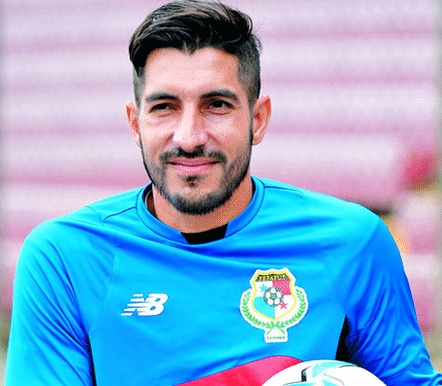 Jaime Penedo, Panama Jaime Penedo, Panama I've kind of gotten hooked on the strange little ritual of the World Cup, when both teams line up in the tunnel, side by side, shuffling around for a minute or two before marching on to the field. I imagine what the players are thinking – planning their best I’m-mortally-wounded dive, or discreetly eyeing their opponents. (“Look at the muscles on that dude.”) On Tuesday I saw John Obi Mikel of Nigeria (6 feet, 2 inches) and Lionel Messi (5 feet, 7 inches, at most) exchange what looked like an authentic hug, between two captains, two No. 10s. I assumed they go back a ways – and they do. But I really got into the lineup sideshow a few days ago, watching the Panama keeper, Jaime Penedo. One of the features of the lineup is that each player marches onto the pitch accompanied by a child. (You guessed it, it’s a promotion, for the fast-food empire that has contributed to the fattening of children, adults, and a chief executive who appears to be neither. The company recruits kids from all over the world to march in this brief ceremony before the lads start whacking away at each other.) Penedo, a stranger to me, turned to a young girl of maybe 10 or so and began chatting, just like a real human being, not a sports star. He was talking and smiling, and as they marched onto the field, the little girl glanced up at the man in the gaudy outfit, as if thinking, “Did he just talk to me?” I looked him up – 36 years old, been everywhere, including a few years with Bruce Arena and the Los Angeles Galaxy, now at Dinamo Bucharest. I don’t know what language he spoke to the young girl; one article says he speaks some English, not fluently. jamesmontague.com/2018/01/27/tifo-interview-with-panama-goalkeeper-jaime-penedo/ If there were such a thing as reward for grace in this world, Penedo would have turned in what the British soccer writers call “a clean sheet” – a shutout, that is. But life is not like that. Penedo was peppered early and often in a 6-1 loss to England and Panama's first World Cup ever will end on Thursday against Tunisia. As for Mikel and Messi. It’s true, they go back a ways, to 2005, in the World Youth Tournament, when Mikel seemed to be outplaying Messi for the Golden Ball, as best player in the tournament, until they met in the final, and Argentina won. “Yeah, Messi stole the Golden Ball off me,” Mikel told the Guardian recently, raving about Messi as not being human. https://www.google.com/amp/s/amp.theguardian.com/football/2018/jun/25/mikel-john-obi-lionel-messi-nigeria-argentina-world-cup They have co-existed at the top tier of European football for more than a decade, with Mikel having a long run at Chelsea (he’s now playing in China) and Messi a lifer at Barcelona. 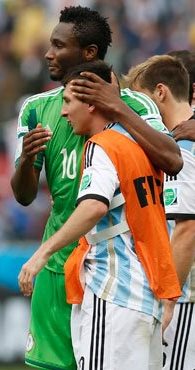 Mikel, Messi,another time Mikel, Messi,another time On Tuesday, Mikel gallantly held his team together (and calmed a few younger teammates.) But Messi took a gorgeous pass and found the upper corner of the goal to put Argentina ahead in the 14th minute. Nigeria tied the match, needing only a draw to advance, but could not find a more conservative gear for spreading the ball around the pitch, killing seconds off the clock. I realized I had seen this match before – 1994, in Massachusetts, when Roberto Baggio saved Italy (remember Italy?) with two very late goals against Nigeria. Twenty-four years later, the very same lack of patience cost Nigeria all over again, in the 86th minute. So Messi advances; Mikel’s World Cup is over. More players will line up in the tunnel, escorting a child onto the field, maybe finding the grace to smile and chat. That's exactly what I said in the final frantic minutes of Germany-Sweden.
Like watching some great beast of a thoroughbred like Secretariat turn on the burners into the home stretch. You know it is in there. Like watching Bill Russell lock eyes with K.C. Jones with a few minutes left. (Sorry for the dated references, but I have my sporting examples-for-life.) 'They never give up. They never get an attitude.' I said that to my wife in the TV den on Saturday afternoon, watching the defending champions play with a man down -- dumb foul by Boateng, but they did not let it kill them. I am doing my watching in our den this week; no pubs right now, no crowds. My wife watches with me, here and there. She witnessed Zidane's final in '98, in the Stade de France, down low, at that end, for his two headers; that would make anybody a fan for life. Germany was in desperate condition Saturday, down by a goal. A draw would barely keep it alive, but then Germany scored in the 48th minute, and then attacked in the final 13 minutes of regulation and stoppage time, one man down, going for it, going for it. And Toni Kroos put in a perfect curling shot from a hard angle on the left side. Talent and will. I've seen them over the last nine World Cups -- relentless, talented, smart, with only one really nasty play that sticks in my mind -- Toni Schumacher's ugly mugging of Patrick Battiston in 1982. World Cup soccer should be viewed beyond old national stereotypes. I've watched them win a World Cup in 1990 as West Germany and another in 2014 as Germany, and do not equate the team with ancient history or the admirable western democracy it is today, with its beautiful anthem, music by Haydn. The football pitch is a place onto itself. In the modern imbalance of soccer talent and expertise and confidence and money, Germany is the old New York Yankees, with Yogi swinging from his ankles, the old Montreal Canadiens (who still ought to be seeded into the finals of the Stanley Cup ever year), the old Notre Dame. They may lose, even to relentless and physical South Korea on Wednesday. But don't ever count them out. Not when they are a goal down, or a player down. Like a horse race: "Here...comes Germany." The benign man-in-the-moon face of Andrés Iniesta has aged, showing new crevices and patches of gray through our telescope. He has already left Barcelona, to play a stint at Vissel Kobe, which is in Japan, not Catalonia. He is leaving a calling card in this World Cup, the knack of completing passes and creating goals at the height of competition. Take a good look at Iniesta, before his lunar orbit takes him across the world. Iniesta – 5 foot, 7 inches – has been the engine of one of the great clubs of the world, playing a few matches for Barca in 2002-3 and becoming a regular in 2004-5, and also helping make Spain the World Cup champion in 2010, with his goal in the 116th minute, four minutes from the dreaded shootout. Iconic players do not always win World Cups, even players of great style and imagination. Just a few names off the top of my addled brain: Sócrates, Platini, Baggio. Any given World Cup can be the Last Chance Saloon in the western movies. In that chippy 2010 final, Iniesta stopped passing for a moment and poked a goal past a Dutch keeper. In a game or five he will bid adios (or adéu, in Catalan) and go to Japan. But first there is this World Cup. Iniesta helped Spain make 803 passes in its first 90 minutes against Portugal, a draw because of Cristiano Ronald. Iniesta then helped Spain make 789 passes in a victory over Iran. One of those passes found Diego Costa in front of the goal, and with the help of a pinball exchange with a frantic defender, Costa scored. Iniesta then came off early, to rest his 34-year-old body. Spain plays Morocco on Monday. The best way to appreciate Iniesta is to see what Lionel Messi is not, without him. Messi is one of the great players of our time, a scoring weapon, who intelligently finds the right spot, or has the right spot find him. However, to appreciate Messi, one must also appreciate the player who was almost always there in his club years at Barca. Messi first played for Barca in 2004-5 but became a regular in 2006-7. Many of his goals were set up by the tiki-taka style, with its Dutch roots, adopted by Barca and also the Spanish national team. On the current Argentina team, there is no dark Maradona will to cheat and win, no style, and no Iniesta. Argentina went down hard, 3-0, to Croatia on Thursday. Croatia came out nasty, and Argentina had no answer but to get nasty back. In all that foot-stomping and spine-jangling, poor Lionel Messi looked lost. His most definitive move all day was bolting off the field and into the runway after the final whistle. Argentina’s next match is Tuesday against Nigeria. Barring some statistical madness, Argentina and Messi will then be done. He turns 31 on June 24, and this could be it for him in the World Cup. Lionel Messi will always have Barcelona -- and, dare I say it, Andrés Iniesta. * * * A very knowledgeable and layered look at Messi and Argentina, from Rory Smith, the British expert now writing for the NYT: https://www.nytimes.com/2018/06/22/sports/world-cup/argentina-lionel-messi.html Two continents have essentially been outsiders at the World Cups, going back to 1930 – Asia and Africa. Both continents had reason to celebrate on Tuesday, with Japan beating Colombia, 2-1, in the first match and Senegal beating Poland, 2-1, in the second. Russia steamrollered Egypt, 3-1, in the third.
All three matches had defensive breakdowns – a Colombia defender stuck out his arm to block a shot in the first match (bad instinct), a Polish defender was struck by his teammates’ deflection (bad luck) and an Egyptian player ran into a brick wall named Dzyuba and a ball deflected off him (bad choice of brick walls.) I enjoyed seeing Senegal back in the World Cup for the first time since 2002, when it stunned France, the defending champion, in the opening match in Seoul. Fast and powerful, Senegal was hailed in 2002 as the arrival, finally, of Africa as a factor in the World Cup. Then again, we have heard this before – about Nigeria, about Cameroon, about Ghana, about several nations from northern Africa. Who can forget Roger Milla, as ancient as his continent, coming off the bench for Cameroon in Italy in 1990, scoring four goals, and then dancing, each time? I hear reasonable people worry about the nationalistic aspect of the World Cup. My position is, what better reason to chant and cheer for a nation (or an entire continent) than a mere football tournament? Get it out of the system. Plus, nationalism is infectious. One becomes an instant citizen, like me hearing the beautiful anthems of Canada, France, Germany, Russia. On Tuesday, the green-clad Senegalese lined up at midfield for the anthem, called “Pincez Tous vos Koras, Frappez les Balafons.” I looked it up: “koras” (a harp-lute) and “balafons” (a xylophone-type instrument) are native to Senegal, and can be used in the playing of the anthem. The composer was Herbert Pepper and the words were by Senegal’s first president, Léopold Sédar Senghor. The English translation: Everyone strum your koras, strike the balafons. The red lion has roared. The tamer of the savannah Has leapt forward, Dispelling the darkness. Sunlight on our terrors, sunlight on our hope. Stand up, brothers, here is Africa assembled. Fibres of my green heart, Shoulder to shoulder, my more-than-brothers, O Senegalese, arise! Join sea and springs, join steppe and forest! Hail mother Africa, hail mother Africa. I was doubly touched when I spotted the Senegalese manager, Aliou Cissé, who played on that 2002 team that stunned France and reached the knockout round. He (amassed two yellow cards along the way.) Cissé is the only black manager among 32 in this World Cup, and, pecking around on the Web a bit, I cannot find another black leader in previous World Cups. I was also delighted by gents wearing white body paint and tricolor pants and soft caps, with S-E-N-E-G-A-L painted across their chests. I flashed back to waiting in railroad stations in France and Korea, cheered by the sweetness of African fans. However, Africa has not become a power in the World Cup -- merely the supply line for the great leagues of Europe. (These Senegalese players earn their living mostly in England and France.) Cissé worked the sideline sporting dreadlocks and eyeglasses. The Senegalese players ran and jostled, with Ligue 1 and Premiership skills. May their numbers increase. After a long day came the delayed debut of Mohamed Salah of Egypt, recuperating from a shoulder injury. The star of Liverpool scored a late penalty kick, solemnly kissing the ball and the earth and praying to the heavens, Muslim style. His first World Cup match. His first World Cup goal. More to come. But we say that every four years. In any World Cup, I would be rooting for nuestros vecinos in the first round. This time around, that means Panama and Costa Rica and Mexico, plus Colombia, which is not in our federation, but surely part of our world. Mexico had a memorable opening match on Sunday, scoring early and holding on for a 1-0 victory over Germany, the defending champions. On the television, I saw a throng of green-shirted fans, from the large comfortable class of that complicated North American nation, rooting for the spirited, well-coached Mexican squad to round out the upset. The knockout rounds will take care of themselves. The old champs are always with us, or usually. I have a strong feeling for the players from the Americas who resemble guys who live and work in my suburb outside New York, whose sons and daughters are going to school with my grandkids – plus, I think about my late doctor, Ken Ewing, former defender and captain of Guatemala back in the day. Mis vecinos. Plus, these are not normal circumstances. Not since I witnessed the President of the United States rubbing his hands with glee at the prospect of building a wall, and holding children hostage to his scheme. Not since I witnessed the garden-gnome of an attorney general quoting the Bible to justify ripping infants away from the breast of their mothers, to teach those people a lesson. I am rooting for my neighbors because I am ashamed of the way the current rulers of my country are using them as instruments of prejudice and retribution. The squads from Mexico and Central America and the Caribbean do not normally need extra motivation against the U.S. They come to every match with jaws out, eyes glaring, as if they were making up for the cruelty of the major fruit companies, or the invasions in the Mexican-American war, or Landon Donovan urinating on a bush during a practice session. Mexico keeps qualifying for the World Cup – FIFA has a generous quota for qualifiers from the region – but does not fare well in the knockout rounds. The Yanks humbled El Tri, dos a cero, in the round of 16 in 2002 and Mexico has never quite regained its swagger in that rivalry. For this World Cup, the U.S. has backslid right out of the field. Panama will play Belgium (my long-range hope to win it all) on Monday -- a tug of rival loyalties. On Sunday Costa Rica lost to Serbia, and later Mexico held steady against a Germany team that seemed to regard the match as a tuneup. What a sight in the end: the mobile keeper, Manuel Neuer, roaming upfield to join the desperate scrum for one extra head or foot on a stray ball, which never happened. The success by El Tri in far-off Luzhniki Stadium in Moscow will not affect the hardened heart of the cruel pharaoh. Little brown children remain separated from their parents. Not that it helps, but until further notice I am rooting for mis vecinos to keep going. * * * (Enjoy the great Andres Cantor calling the goal by Hirving Lozano. Watch how Lozano evades Mesut Ozil at the end of a stunning counter-attack. Golllllllll!) Bad timing by Leo. On the day after Cristiano Ronaldo made three goals to draw against Spain, Messi had to take a penalty kick against Iceland, the smallest nation ever to play in the World Cup.
It was the same day that my friend Jeffrey Marcus, in his World Cup site called The Banter, picked up an article from Bleacher Report that explained http://bleacherreport.com/articles/2764081-why-leo-messi-is-so-good-at-free-kicks-but-so-average-at-penalties. It was only a few days since I was questioned by the son of an American friend now living overseas about my general feeling that Messi is not the great transforming player like, well, I could name Ronaldo or Maradona or Zidane. All that was floating around Sparta Stadium in Moscow when Messi stepped up to take a penalty in the 64th minute. Wearing his lime-green shoes and his humble stare, he plopped the ball well within range of the Iceland keeper, who swatted it away. Everybody – the fans, the American broadcasters, and chubby old Diego Armando Maradona, holding a cigar in the stands – knew the deal. Leon is 30. (Of course, Ronaldo is 34.) Maradona would have done something. Feigned a cyber-attack by Iceland. Fell clutching various parts of his body. Demanded a do-over. Punched the ball -- harder now with the unobtrusive and useful VAR instant replay. Messi is a beautiful player and strategist, gliding through traffic, seeing the flow, emerging from nowhere to uncoil like some exotic tropical serpent. But from the penalty line, not so great. Other great players have hated to take penalties – Roberto Baggio and Mia Hamm, to name two. In the soon-to-be-discarded four-team group format, Argentina lives, and so does Iceland, which has a magnificent point from its first World Cup match, ever. Its players were sturdy and intelligent and incessant, schooled in the leagues of Europe. Argentina has had bad openers before. A leaper from Cameroon beat them in the first match, as defending champions, in 1990. But they mauled and clawed and dove their way to the final, anyway. The World Cup is a long haul. The first match, the group stage, a familiar pace, is for charming outsiders, while superstars struggle to establish themselves. I stand by my evaluation of Messi a week or two ago. Onward. Back a decade or three, American sports fans (and, dare I say it, the flower of the American sporting press) used to characterize soccer (a/k/a The Real Football) as an un-American pastime reeking from scoreless ties (plus the reliance on feet, how grubby.)
However, on Friday, Americans watched a match that was scoreless for 88 desperate minutes – and I think it was impossible to miss the drama. For the breakfast show, direct from Yekaturinburg (where the last tsar and his Romanov family were executed in 1918, but I doubt the sportscasters made much of that on Friday), Egypt tried to salvage a draw against Uruguay, a perennial World Cup qualifier. This was a classic World Cup opening match, when panic and caution often collide – four teams playing in their own little playpen, to eliminate one or two teams from the next round. Uruguay expected to win the match and the group; Egypt wanted to survive, perhaps with 1 point for a draw. This is the format that has produced some yawners between teams that did not want to lose, but this match had a sub-plot: Egypt will then play the two other teams in the group, Russia and Saudi Arabia, not as good as Uruguay. Ah, ha, ha, ha, stayin' alive. I need to add that this four-team group format is about to be scuttled by the friendly folks from FIFA, when they expand their quadrennial jamboree from 32 to 48 teams (worth perhaps an extra $1-billion) when the 2026 World Cup is held in Canada, Mexico and the land of the Big Mac and the infamous 32-ouncer. For this World Cup, some teams may seem to waltz in the group stage, but nobody wants to play their hearts out and then lose in the 89th minute as Egypt did on Friday, winning hearts but blowing the 1 point. One yielded free kick, one leap by a Uruguayan player above two defenders, one exquisite header, and Egypt lost the point – but kept a hopeful goal differential – and most likely fans will now root for them to score and win against Russia and then Saudi Arabia. (I am leaving all snarky geopolitical comments out of it.) Another subplot was that the two managers were geezers – Oscar Tabarez of Uruguay, age 71 and leaning on a cane because of Guillain-Barre syndrome, and Hector Cúper of Egypt, age 62. Cúper had tantalized fans with talk that Mohamed Salah, the superstar for Liverpool, whose shoulder was tactically mauled by Sergio Ramos of Real Madrid early in the Champions League final, would be ready Friday, but Salah never even warmed up. Perhaps Cúper was keeping Salah away from Luis Suárez, the Hannibal Lecter of footballers, who has bitten at least three opponents over the years. Suárez flashed his choppers; Salah watched in tears as Uruguay scored late. The touch-by-touch drama made for compelling soccer, even here in the States. And in the familiar four-team group format, the drama and the tactics are just beginning. (I am thinking of leaving this World Cup match post up for a while. Please feel free to chime in, whenever. The NYT is doing a great job from Russia. And my former Times soccer pal, Jeffrey Marcus, now free-lancing, has his own learned World Cup newsletter. To sign up: http://jointhebanter.com/about/) June 14. Russia 5, Saudi Arabia 0. Knowing nothing about either team, I put on Fox five minutes before kickoff. I noticed that Russia had a defender named Fernandes (from Sao Caetano del Sur, Brazil) and a defender named Ignashevich whose face looks like hardened cement and who does not sing the beautiful Russian anthem. (Turned out, he’s 38, hasn’t played for the national team since 2011, so he may be out of practice for singing the anthem. Or his lips don’t move.) Then I noticed a lanky midfielder named Golovin, with a Lyle Lovett hairdo, who reminded me of one of the most charismatic and talented leaders I have ever met, Mrs. Gollobin, the director of the Jamaica High School choir and chorus back in the day. She once snapped at me, “George, be a mensch,” and I straightened right up, in her presence, anyway. I decided to root for Aleksandr Golovin. Good choice. He set up the first three Russian goals for adept passes through the gaping Saudi players. I looked him up – 22, and being scouted by Juventus. He showed his youth by picking up a pointless yellow card in the final minutes. By the time he curled a free kick into the corner in the closing seconds for the fifth goal, Golovin had surely confirmed his ticket to Torino. Mrs. Gollobin would be proud of him. Having covered eight World Cups for the NYT way back when, and having written a book about them, (https://www.csmonitor.com/Books/Book-Reviews/2014/0530/Eight-World-Cups-by-George-Vecsey-decodes-international-soccer-for-newbies,) I tried to compare this day (on the tube) with openers I attended: The fans were a classic World Cup mix; could have been anywhere -- international types who could afford a ticket. Pretty woman in a red and white folk dress; guys with goofy headgear. One other observation: how nice it is to hear old World Cup hands, J.P. Dellacamera and Tony Meola, working for Fox, and confirming that one does not need a British accent to call a match for U.S. television. How was your first match? The delegates of FIFA have voted, early Wednesday, to award the 2026 World Cup to a combine of the U.S.A. and its dear, highly-respected neighbors, Canada and Mexico. The United group defeated Morocco, 134-65, thereby rendering moot the concerns that delegates would be swayed by disdain for Goliath and its current president, or respect for the African bidder, or the grand old FIFA tradition of packets of (American) dollars. There was a last-minute appeal by dignified Moroccan supporters, speaking up for the vast love of soccer in Africa, the supply of African footballers being recruited by the fast leagues of Europe, the worthiness of the Moroccan bid, and the fact of Africa as the birthplace of civilization. But the three North American nations won. I must note that I heard about the possibility of a tripartite World Cup many years ago from Sunil Gulati, the former president of the U.S. federation. Gulati deserves some of the credit for this success, which took place with a new American president spewing contempt for its closest neighbors. This is what I wrote before Wednesday's vote in Moscow: * * * Any vote in the soccer federation known as FIFA is always suspect, given the history of blatant bribery that let to Russia being host to the looming World Cup and that soccer power of Qatar being the host in 2022. Qatar! The new leadership of FIFA keeps insisting it has cleaned up the influence-peddling scandal that extended to American officials including the late Chuck Blazer in his lair in the Trump Tower, and who knows who else. FIFA is continuing its money-grubbing tradition by expanding future World Cups to 48 teams (perhaps the U.S. will then be able to qualify) and by considering lucrative club tournament Cups that would put the well-paid players on a faster, longer hamster wheel of games and travel, injury and early disintegration. The FIFA home office has released a technical survey showing that the North American group – henceforth known as The Three Amigos – is vastly superior to the Moroccan bid in little details like stadiums, infrastructure, soccer expertise, money-making potential. But, as in the United States these days, facts and studies and information are not always considered. First, do not emphasize the grand old FIFA tradition of envelopes stuffed with dollars going to delegates in return for their votes. Second, by exquisite coincidence, the vote takes place at the same time the U.S. has gone rogue, electing a disturbed person as president. While the leader of the fact-free world is blustering in Singapore, the delegates to the FIFA will gather in Moscow on Wednesday, June 13, to choose the 2026 host. Sports federations have voted on the U.S. in the recent past. The International Olympic Committee voted for the Olympic host, and to some degree New York (2008) and Chicago (2012) were judged in the wake of President George W. Bush’s blundering into the invasion of Iraq in 2003, thereby throwing the world into chaos. The I.O.C. delegates – generally of a far higher caliber than the avaricious voters from tiny countries in FIFA – saw the smoke emitting from the Middle East and witnessed the dead and the migrants and voted for London and Rio – reasonable votes, producing memorable Olympics, no quarrel there. But the U.S. never had a chance, given its image as a Goliath-gone-mad. Now the FIFA delegates – a far more rank kettle of fish -- used to selling their votes -- get a chance to judge kick the most powerful member of the soccer troika. Tethered to an ignorant bully are Mexico – vilified by the U.S. president for its migrants who help make the U.S. work – and Canada – charged with burning the White House in 1812, its leader described as “weak.” Forget the lopsided technical evaluation. Overlook the grand FIFA institution of bribes. Morocco’s best chance for staging the 2026 World Cup would seem to be that its chief executive is not named Donald J. Trump. * * * NB: The NYT reports that President Trump has sent three letters to Gianni Infantino of FIFA assuring that the restrictions for visiting the U.S. would not be enforced on well-heeled tourists to a potential 2026 World Cup. See article: www.nytimes.com/2018/06/12/sports/trump-letters-world-cup.html Stan Musial would know how Brandi Chastain feels. The great St. Louis Cardinal slugger went through his final decades honored by a huge statue outside the ball park, which, alas, did not at all capture his unique corkscrew, crouching batting style. Musial hated it, but being a get-along kind of guy, he smiled and said very little in public. The latest abomination is a plaque for Brandi Chastain, the great soccer player who converted the game-winning penalty kick in the final of the 1999 Women’s World Cup. Chastain’s team nickname was “Hollywood,” given by teammate and locker-room leader Julie Foudy. Asked to fill out a team questionnaire, Foudy came to the question: Favorite Actress? She wrote: “Brandi Chastain.” Brandi has panache. She showed it upon making the championship shot in 1999, and, just like Cristiano Ronaldo and all the guys, she ripped off her jersey – in the center of the Rose Bowl – revealing an industrial-strength sports bra and just a few more inches of herself, an athlete at the peak. Chastain was a terrific full-field player, a footballer, smart and competitive. She was recently voted into the Bay Area Sports Hall of Fame and honored with a plaque depicting, well, somebody named Ellsworth or Percy who won a club championship in golf or tennis back in the 1920’s. “Brandi Chastain is one of the most beautiful athletes I’ve ever covered. How this became her plaque is a freaking embarrassment,” tweeted Ann Killion of the San Francisco Chronicle. The plaque will apparently be re-done. Chastain was gracious about it, as reported by Victor Mather in The New York Times. (Check out the links with other examples of wretched sports iconography.) Musial, who died in 2013, generally took the high road about the statue by Carl Mose. I wrote about it in my biography of Musial, and my late friend, Bryan Burwell, sports columnist of the St. Louis Post-Dispatch, gave his art critique in 2010:
http://www.stltoday.com/sports/baseball/professional/musial-statue-must-go/article_72b0bf1e-952f-582c-b52b-0b8ffe984b0f.html Stan the Man did like a much smaller statue by Harry Weber, part of a series of St. Louis ball players outside the ball park, including Cool Papa Bell, immortal Negro League star. This one captures Musial’s energy in his follow-through. Even on a plaque, Brandi Chastain deserves to look like herself and not Mickey Rooney or Jimmy Carter. I’m not an artist, but how hard is that? NB: The Reply/Comments section seems to be out. I cannot add a comment from here. The company had this problem a month ago and took a week to fix -- or give out information. I don't have the patience to deal with their tech department right now. Anybody with my email who has a comment, please be in touch. GV Check out the colorful outfits. Listen to the music. Pay attention to the message of inclusivity.
I am speaking here of the international flavor of the FA Cup Final on Saturday from sunny Wembley. Chelsea – owned by a Russian, coached by an Italian – beat Manchester United -- owned by an American and coached by a Portuguese – by a 1-0 score -- on a penalty kick by a Belgian. The FA Cup is one of the more romantic club championships in the world (even as FIFA threatens to pollute football with an extravagant quadrennial club tournament.) Talk about democracy: the FA Cup tournament began last summer with amateurs and semi-professionals and other back-benchers but competition eventually produced two finalists from the top third of the Premier League, or as they say at Windsor, la crème de la crème. The FA final was held after the royal marriage had taken place earlier, so that one great event did not intrude upon the other. (Anybody go to both?) The wedding of Prince Harry and Meghan Markle, an American actress of biracial background, was a blend of royal tradition with a warm sermon by an American clergyman quoting Martin Luther King, plus that old English cathedral favorite, “Stand By Me,” written by Ben E. King, Jerry Leiber and Mike Stoller. The queen's chaplain, born in Jamaica, and a 19-year-old cellist from Nottingham but clearly also of African descent, added to the new feeling of inclusion. The buzz of the wedding inspired Lourdes, a friend in Manhattan, to prepare a veddy English tea for the big event. And in Deepest Pennsylvania, a group of women donned millinery in the murky dawn to watch the great event. Not everybody was charmed. I checked in with a favorite relly, Jen From Islington, to see if she was watching. “Nah,” she wrote back. But then she checked a few photos on line and was inspired to write: “Underwhelmed by it all. Esp. since I learned they invited 1800 of the wretched of the earth to Windsor to watch but failed to provide them with a packed lunch. If you are having a party, have a party, I think. Don’t have a pay-as-you-go bar, or make people kick in for the cake. But then, I am a republican. xxJ.” At the very least, the royals may be catching up with soccer, which has gone international in recent generations, with the old dump-and-chase English style made irrelevant by ball skills and intricate passing and devastating marksmanship, as performed in the Premier League by some of the greatest players from around the world. (The influx of world-level players does not seem to rub off on English players, who have qualified for the upcoming World Cup – better than some nations I could mention -- but are not likely to be around long.) (On the official Chelsea roster, 21 of 27 players are from outside England; on the official Man U roster, 19 of 27 are registered with other national federations.) Presumably, this international flavor will continue after the implementation of Brexit diminishes the quality of life -- and probably football -- in Great Britain. Somebody has to make Britain great again. On FA Cup final Saturday, Harry and Meghan did their bit. I am not alone in my quest for a team. My friend, Jeffrey Marcus, long-time web soccer guru for the Times, is now editing his new blog, The Banter. I finally got to his hopes for an outsider and its dashing star player. I urge soccer buffs to sign up for Jeffrey’s informed opinions, and comment frequently during the World Cup and beyond. His World Cup hopeful:
us12.campaign-archive.com/?u=d9c158d4c4e158a6f42e1af75&id=13fc6f1be4 * * * And mine: As the World Cup approaches, I find myself un po triste – a little sad. The team I have come to love in the eight World Cups I covered will be absent from the upcoming World Cup in Russia. Yes, I feel empty because the U.S. has failed to qualify for this World Cup, after some wonderful moments from 1990 on. But I am currently missing more than Our Lads while waiting for the World Cup to kick off in Moscow on June 14. The music I hear in my head and heart is the merry little tarantella of a national anthem, “Il Canto degli Italiani” – the Chant of the Italians. (The lyrics are far more fierce than the music, which made me think of a tartuffo on a summer evening in the Piazza Navona.) I associate “Il Canto degli Italiani” with soccer – calcio – as the perpetual portiere, Gigi Buffon, roars out the anthem with fierce and loving facial gestures. Italy has been my constant, since my first World Cup, 1982, when I covered two strange three-team groups in Barcelona. One of the first matches was underdog Italy, recovering from a scandal, playing Brazil, the soul of the sport, with players like Sócrates and Falcão and Zico. I still say Brazil was the best team I ever saw in any World Cup. But it lost to counter-attacking Paolo Rossi that day, and the Italians went on to win the World Cup, one of the most surprising champions ever. Since then, I have been a wannabe Italian. I don’t cheer in the pressbox but I privately enjoy whenever the Azzurri march onto the field. Alas, the Italians did not qualify for Russia, and neither did the Americans. I am not about to riff on the deterioration of American talent or why Italy failed. But now that I am retired – not writing except on this little therapy web site -- I need to identify a few teams to root for, from several different categories: Underdogs/New Faces: Think of South Korea and Turkey both getting to semifinals in 2002, or some of the African teams that have been fun early in tournaments. I cannot imagine a better choice than Iceland, in its first World Cup. Regional Teams: The U.S. runs into Mexico, Panama and Costa Rica in qualifying, so I wish them well. The same for Colombia, whose people add to life in New York. Buena suerte, vecinos. Personal Ties: Carrying an Irish passport, courtesy of my Irish-born grandmother, I loved watching Ireland make a stir in 1990 and 1994. I don’t root for England, where my mother was born, on my callous theory that England will always have 1966. But this year, I will root for a genuine contender, Belgium, partly because the talent has been coming on, and partly from loyalty to my mother’s Belgian-Irish cousins who died at the end of World War Two after being caught harboring Allied troops in Brussels. Win one for Florrie and Leopold, forever young. Blast from the Past: I was quietly delighted when artistic Spain won in 2010 -- particularly after the Netherlands went thuggish in the final. If holdovers Andrés Iniesta and Sergio Ramos and Gerard Piqué and David Silva make a run, that will be fine with me. The Best Team. I have lived long enough to respect Germany as a modern democracy with an admirable leader – and home of a team that plays the game right. The defending champions have the same system and many of the same players who aced the 2014 World Cup. I still love the mystique of Brazil. Leo Messi of Argentina or Cristiano Ronaldo of Portugal could carry their teams. Or, some other team could get hot while making instant fans – kind of like the Houston Astros did for me during the baseball post-season last year, love at first or second sight. I will miss the Americans. And at odd moments I will hum a few bars from “Il Canto degli Italiani,” just to feel that it is a real World Cup. * * * The first thing to note is that my wife has been studying a grandfather’s genealogy in recent years, producing notebooks packed with Grundys and Cleggs and Schofields from towns around Manchester – Bury, Oldham, Salford and Rochdale.
The second point is that my wife has more tolerance for soccer (the real football) than any other sport – partially because the lads are fit and usually get their work done on time. Through friends, she attended the best individual World Cup final ever – Zidane’s masterpiece over Brazil, in great position to see his two headers. On Sunday I said Rochdale was playing Tottenham in an FA Cup fifth-round match – on the tube, in our warm den. She had never heard of the Rochdale team but did know about Tottenham from Joe Scarborough’s lovely recent documentary about the North London darby – Tottenham vs. Arsenal: suspected hooligans, tattoo artists, rabid Tottenham owner, rabid Piers Morgan, Arsenal fan. As the match began, I chattered about the romance of the FA Cup – the open tournament from late summer to following spring which allows modest clubs to take on higher-ranked teams, with a glorious history of upsets and scares. In 2003 we were in London partially for me to write a piece for the Times about a squad “with a tree surgeon (with chain-saw scars to prove it) along with truck drivers and teachers,” along with a couple of actual professionals, from lowly Farnborough, down south, somehow reaching a third-round FA Cup match at Arsenal’s beloved old stadium at Highbury, and how the visitors even managed a goal against Arsenal’s irregulars in a 5-1 loss on a lovely Saturday morning. My tutorial over, we settled in to watch a fit and eager squad from Rochdale play the Tottenham irregulars at a modest 10,000-place field, now carrying the name of an oil company, but known to fans as Spotland. Why Spotland? I wondered. “Some of the old miners in my family lived in the Spotland section,” my wife said. Later she produced copious period maps of Rochdale from her stacks of notebooks. (FYI: The name Spotland comes from the River Spodden, which flows from the Pennine Hills.) The British broadcasters gave enough FA Cup details to overseas viewers – how Rochdale is in the third level, below Premiership and Championship, how a few lads have had a taste of the top rank, and a few young ones are still prospects. (I later learned that Rochdale, in 1960, was the first FA squad to hire a manager of color, Tony Collins. Since then, there has been exactly one more: Ruud Gullit.) For the first half hour, the home team jostled with the visitors on a new and treacherous field. Then came a glorious sign of fear and trembling from the Champions League side: wavy-haired Harry Kane, surprise marksman of recent years, began stretching on the sidelines. Rochdale would always have this: making Harry Kane, due for a day off, break a sweat, just in case. Who are those guys? I looked up the Rochdale roster: one striker was Stephen Humphrys, a 20-year-old from nearby Oldham, on loan from Fulham. “We’ve got some Humphrys in our family,”Marianne said, reminding me that some of them ran ships to Cuba and on to the colonies, carrying Lord-knows-what. She claimed Humphrys as a relative. The visitors began to pack the offense – enough of this foolishness – and we rooted for the home team to just hold them until the half. But the home boys showed enough professional skill to launch a counter-attack and have Ian Henderson, 33-year-old striker, who once mulled dental school, score in the 45th minute. Much yelling in our den – and not by me. My wife has been tracking people from Lancashire who worked in the mines or farmed, some migrating to Australia or New England and Virginia and Kentucky, or stayed home, adjusting to the Industrial Revolution, and then saw the factories sputter, and Nazi bombs destroy, and time march on, and Manchester City eat Manchester United’s fish-and-chips more often than not. (Her genealogy includes the name Scholes, from Salford. I told her about Paul Scholes, red-headed stalwart for Man U, most caps by any English national, who is from Salford, owns the sixth-tier Salford City club. No further connection detected.) In the second half, Tottenham did what it needed to do: tossed in three regulars, including Harry Kane, and tied the score. Then, after a world-level dive by Dele Alli, who is known for that stuff, Harry Kane coolly poked in the penalty in the 88th minute and Tottenham went ahead, 2-1. Moral victory? Not yet. In the 93rd minute, with one minute left in injury time, the last Rochdale sub, Steve Davies, in a desperation swarm, found a seam and fired into the corner for a 2-2 draw. Davies, we quickly learned, is a 30-year-old striker from Liverpool, who has played for some decent clubs. My wife said the family tree included people from Liverpool, and people named Davies. She adopted them all, the 14 lads who played, the fans packed together in the modest stands, as her instant rellies. The replay's gate receipts will carry Rochdale’s budget for the next few years, according to their jubilant, gray-bearded manager, Keith Hill, beneath his workingman’s cap. The Tottenham manager, Mauricio Pochettino, was more than gracious as he patted Hill’s gray beard and headed toward the team coach back to London. The weary Tottenham players, who endure dog years for huge salaries in their tri-level competitions, must now gear up for one more match, albeit it at home. Feb. 28: 10 AM, Eastern Time. The romance of the FA Cup endures. (While Americans celebrate Thanksgiving, let's take a tour of Napoli with master photographer John McDermott.) He is from Argentina but claimed Napoli as his spiritual home. Diego Armando Maradona played 259 matches for SSC Napoli and scored 115 goals, the most in franchise history. He lived on a hill in Posillipo, like an ancient prince, and he had the gall to insist Neapolitan fans should root for Argentina against Italy in the 1990 World Cup semifinal because, really, Italians do not consider Napoli to be part of Italy. His successful penalty kick put Argentina ahead to stay in the shootout. Then Argentina sputtered in the final against West Germany, further north in Rome. Eventually, his paranoia and dissolution forced him to leave Napoli, but in a way he has never left. His stubby young figure on paintings and posters resists the heat and humidity and grime in the ancient city. A man of a certain age takes out an ancient clipping that recalls how Maradona declined a transfer to one of the rich clubs up north in Italy. For a mountain of money, he said, “I am Neapolitan and I do not betray my people.” The memories of Maradona leapt out at a recent visitor, John McDermott, who covered eight World Cups, I believe. John played calcio for an Italian social club in North Beach, San Francisco, and now he and his wife Claudia live in a northeast corner of Italy. He and Claudia were on holiday recently; Diego Armando was everywhere. But it wasn't all calcio. While John and Claudia were strolling, they saw this: John McDermott's web site is:
www.mcdfoto.com (Great piece by Jason Horowitz on tristezza in Italy.)
https://www.nytimes.com/2017/11/14/world/europe/italy-world-cup.html * * * Hoping to feel some enthusiasm for the tottering Italian soccer team, I emailed a couple of Italian friends early Monday with the message: Forza Italia!!! One wrote: “Thanks George, but I have already switched sides to Morocco. “We do not deserve to qualify at ALL! “Next June Italy-USA: Disappointed Cup!” The other wrote: “Thank you Giorgio. But we are pretty bad.” (My two friends are journalists. Journalists know stuff.) They were preparing me for the sodden performance in San Siro Stadium in Milan on Monday – a 0-0 return draw in the playoff, after the 1-0 defeat in Stockholm last week, which means Sweden is going to the 2018 World Cup in Russia next year. And Italy is not. To me, a World Cup does not seem like a World Cup unless Italy is in it. They hadn’t missed since 1958. They won the first one I covered in Spain in 1982 and another one in Germany in 2006 and when I think of the World Cup I think of those beautiful azure jerseys and the merry tarantella of a national anthem. I was in dank Milan in 1993 when Italy had to get a result to get past Portugal in a similar ansia – and they manufactured a goal out of habit to qualify for the Stati Uniti the next year. I love Italian ansia – but not so much when they stop producing genius. Italy had almost nothing on Monday, even though the Italian papers tried to conjure up memories of Pirlo and Baresi and Baggio and Cannavaro and Totti and Del Piero and Rossi and all the other stalwarts of World Cups past. Ghosts don’t play. That was the real Gigi Buffon, grimacing in pursuit of his sixth World Cup, which would have been a record, but Sweden knew how to hold a one-goal differential for 90-plus minutes. Bravo. However, there is hope for Italy, just as there is hope for other squads gearing up for their own Disappointed Cup next June when the lads will not have anything more pressing to do. The terror of these November final play-in series will be diluted in 2026 when the actual World Cup final tournament is expanded from 32 to 48 squads. This is the gimmick (even worse than baseball's bogus designated-hitter rule) from the masters of FIFA, the world soccer body, known for its scandals, its sweetheart TV contracts. Just as in the game on the field, the names change but the uniform numbers remain the same. The lords of FIFA have decreed: let there be 48 teams. Good for business. More chance for even ponderous giants like the USA or stale dynasties like Italy and the Netherlands to slip through. The more the merrier. It’s good for business. Never mind the rank fear that goes through countries like the USA, which was just getting used to qualifying, and Italy, which was tied with Germany for most appearances with 18, but now Germany, the defending champion, goes through with 19, on merit. So the USA now tries to find a way to include its huge Latino population without families having to pay a fortune just to play the world game, and without parents having to drive children to practices at all hours, many miles away. Meanwhile: Italy tries to rediscover the moves and passes and laser shots so blatantly missing on Monday, raising the question: Is Italy the new England? (Meaning, well past it.) Face it: competitive decline means little in soccer, since the barons of FIFA poured rank rain water into the olive oil of the World Cup. Meantime, pick your team: Morocco, Tunisia, Iceland. Out of 32 teams going to Russia next year, that’s pretty cool. Although the burghers of FIFA may still find a way to screw that up, in the name of democracy. Or viewers. 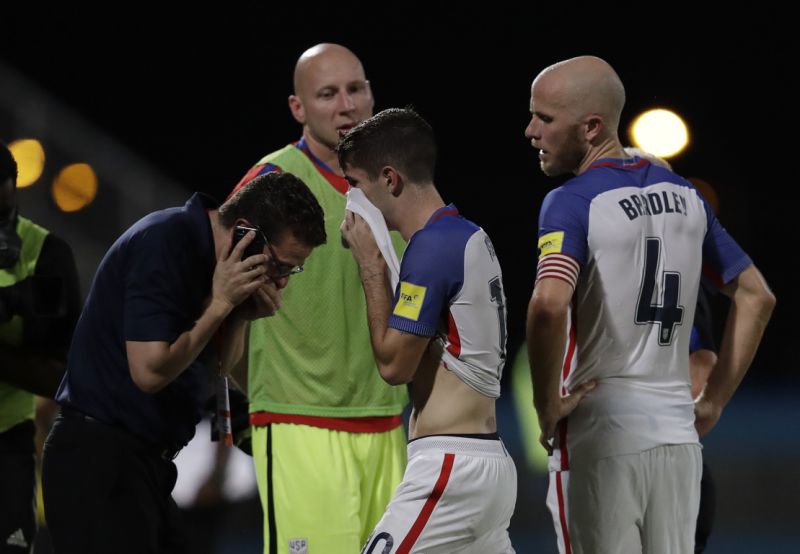 All right, so the United States has one male soccer player with moves – Christian Pulisic – but it is not going to the World Cup next year. If I may look at the big picture, this proves that the World Cup as constituted still has some credibility, when a huge nation can fall short (as has the Netherlands and other traditional soccer powers in other years.) But stick around until 2026, when the new leaders of FIFA are committed to expand the final tournament from 32 to 48. This democracy-in-action will be too late for this ragged lot from the U.S. which lost 2-1, at Trinidad & Tobago Tuesday night and was eliminated even from the last-chance-saloon of a November playoff. The looming gimmick in 2026 was designed by FIFA to help the U.S., with all its TV money and affluent fans, to qualify. I keep trying to tell these FIFA people that the agonizing regional tournaments are a vital part of the World Cup process. Glorious things happen for the occasional Panama; hideous embarrassments happen to the occasional France or Spain or Netherlands or, dare I say it, the U.S. of A. -- Goliath stumbles on a banana peel, or some such shame. If Pulisic can survive the drubbings he receives in regional play – he’ll only be 28 during the 2026 World Cup, presumably in North America -- he could avoid the list of Best Players to Never Reach the World Cup final tournament: Alfredo di Stefano, George Weah, George Best, Eric Cantona, Ryan Giggs. In its own morbid way, it’s an honor. In the meantime, the U.S. is faced with a massive housecleaning. I really don’t blame Bruce Arena for the failure, except that’s what coaches are for -- to be blamed. He played whom he had. I spent the first 15 minutes thinking, oh, geez, Omar Gonzalez is still a hapless lug in the middle – and then Gonzalez got burned on both goals, as did Tim Howard. It seems clear that the admirable Howard, Michael Bradley and Clint Dempsey are past it for this level of competition. And after Pulisic, there is…? So the U.S. starts all over again, with talk about programs and development and finding better athletes. I feel like I’m back in 1985, watching the U.S. team get whacked by Costa Rica in California, and falling short of the next World Cup. As Rick Davis, 26 and the mainstay of the American team, said in 1985: ''Tell the young kids to keep it up. Unfortunately, for somebody like myself, we missed the boat.'' I was there in 1985. I could run five miles in those days. Donald Trump was some local popinjay who apparently built stuff. Those were the days. Now it’s 2017 and the U.S. cannot beat the weakest team in the Hexagonal tournament. To paraphrase my old Brooklyn Dodger roots: Wait Til Next Year. Or 2026. * * * My colleague Ridge Mahoney says Arena was wrong to use same starting 11 as Friday. Ridge has a good point. They looked lethargic. Read a real pro: https://www.socceramerica.com/publications/article/75252/usa-tt-takeaways-playing-same-team-as-on-friday.html My late doctor was a soccer player.
Former captain of Guatemala. Played professionally in Mexico while in med school. Dr. Kenneth Ewing used to tell me he drove east on the Long Island Expressway to watch weekend games in Latino neighborhoods. “Those kids play better than our national players” the doctor said. What he meant was that young players had moves they learned from their fathers and uncles and brothers, playing the game they knew and loved. I used to argue with him, or rationalize. Not a good idea against an old defender. I was thinking of the good doctor Friday night when I witnessed Christian Pulisic’s bag of tricks against Panama. The kid – 19 – has somehow shrugged off the volunteer coaches with an instructional book in one hand who urge the lads to cut all the fancy stuff and boot the ball upfield. (“Stay back, you’re a midfielder!”) Pulisic went to Dortmund at an early ago and German coaches fortified rather than nullified his instincts. (What John Thompson, when he coached Georgetown basketball, used to scornfully call “The Boogaloo” – meaning that fancy stuff would immediately earn a seat on the bench.) Christian Pulisic employed The Old Boogaloo against Panama on Friday night in a game the United States needed or face four years of shame. But the kid and his mates (and, yes, Coach Bruce Arena, with his go-for-it formation) staved off disgrace with a 4-0 victory that puts them in good position to play in Port of Spain Tuesday night and wrap up an eighth straight trip to the World Cup in 2018. The best move was on the second goal. Pulisic had scored the first one. Now he took a luscious lead pass down the left side and busted downfield, with poorly-placed defenders trying to catch up. One of them tried to square up against Pulisic and the kid performed a series of fakes and false starts, dragging his rear leg while actually accelerating. He turned the corner, lashed a lefty pass toward the goal where Jozy Altidore put it away. First time I saw moves like that was, as a kid, watching the old New York Yankees of the All-American Football Conference in Yankee Stadium, late ‘40s, when a little chunk of a scatback named Buddy Young, out of Illinois, practitioner of The Boogaloo, would jitter around defenses. Lovely man, Buddy Young, passed too soon. Wouldn’t I like to tell him he has a spiritual grandson, out of Hershey, Pa., who somehow escaped the inhibitions of local American soccer coaching to help win an absolutely vital match. Pulisic’s story is just beginning. Opponents in regional play hack him cynically; I hope officiating in the Bundesliga is tighter. Bless all the lovely players who have taken the U.S. this far – Claudio Reyna, Tab Ramos, Landon Donovan, Clint Dempsey, Eric Wynalda, Paul Caligiuri, Jozy Altidore, you name ‘em. The U.S. has a kid who can stutter-step. I’d love to hear my doctor react to that. * * * Best piece I’ve seen on Pulisic was written by Jacob Klinger 15 months ago: http://www.pennlive.com/sports/index.ssf/2016/06/christian_pulisic_us_soccer.html The other day I wrote about watching the Champions League match from Monaco -- in Brooklyn. Young fans in Israel watched the most recent Clasico from Spain, on April 23 -- projected from a laptop onto canvas, resting on an artist's easel. The host, Mendel Horowitz, does not have a TV in his house. (What a great idea. Except for soccer and baseball.) The young people improvised. This was the match won by Leo Messi, two minutes into stoppage time. www.nytimes.com/2017/04/23/sports/soccer/barcelona-real-madrid-lionel-messi-el-clasico.html?_r=0 My friend Horowitz, originally from Queens, insists Messi is the greatest active player in the world. One thing I have learned over the years is, never argue with a rabbi. (see Comments below) A few months ago, Rory Smith wrote a prescient piece in the Times saying the Champions League was becoming same-old, same-old. That could also be said about many American events like the Final Four or Super Bowl, when a new Destiny’s Darling rarely wins out, but he was basically right. The disparity in soccer is continued during the first leg of the semifinals this week, with Real Madrid humiliating cross-town rival Atlético, 3-0, on Tuesday in their annual Champions League encounter and Juventus pretty much annihilating Monaco, 2-0, on Wednesday. For me, the utter one-sidedness of both matches was made tolerable by people I have seen in uniform in the past couple of decades -- great moments and abject failures by Diego Simeone, Zinedine Zidane, Cristiano Ronaldo and Gigi Buffon, dominant players, dominant personalities. And, really, isn’t that the essence of sport – the past adding to the present? This gigantic youth with the Yankees – Aaron Judge – has already hit 13 homers this season, bringing comparison to Ruth and A-Rod, to say nothing of Mantle and Maris. Sports fans watch two things at once – live action and mental replay. On Tuesday, I saw two trim gents on the sidelines, just a few yards apart. I envisioned Simeone, stalwart defender for Argentina, provoking David Beckham into the worst moment of his career, a petulant kick of Simeone in plain view of everybody in St. Etienne, France, during the 1998 World Cup, for which Beckham was ejected. And speaking of ejections, I could see Zidane gliding and dancing and leaping for two header goals in what I consider the greatest (or at least most beautiful) World Cup final performance, ever in the Stade de France, 1998, the whole nation chanting Zee-dahn! Zee-dahn! Then of course I could see Zidane, provoked by a former opponent, from Serie A, head-butting Marco Materazzi of Italy, late in the final of the World Cup, and trudging off impassively after being ejected. There they were on Tuesday, two great players involved in historic meltdowns, watching Atlético being destroyed by Real Madrid – or should I say by Cristiano Ronaldo? CR7 willed himself to three goals, the second one, into the upper left corner, about as vicious and accurate a missile as any of us will ever see. I have referred to Ronaldo as a pretty boy with tinted hair and supercilious smirk, but now I see him as the best player of his time. My two Arsenal pals, with whom I watched Wednesday's match, say Leo Messi is the best but for me Messi excels in a pattern whereas Ronaldo is a force unto himself. The fourth familiar face this week was the expressive Buffon, who shows more emotion at singing the Italian anthem than most people muster up for the biggest events of their lives. He and Juve seem to have been doing this forever, interrupted briefly by scandal a decade ago. Buffon is 38, still able to flick away just about anything and then find time to socialize with opponents. He shut down Radamel Falcao Wednesday and greeted his opponent as he departed. Later Buffon fell to the ground to smother a loose ball and Monaco’s 18-year-old Kylian Mbappé chose to leap over him, rather than raking his cleats on Buffon's ancient spine. Buffon gave him a toothy smile and a collegial pat on the head. Don’t be fooled by this show of brava figura. Italian defenders often smile and schmooze – like lanky Giorgio Ciellini of Juventus, who cold-cocked a Monaco opponent with his elbow Wednesday and then knelt over him solicitously, as if he were some kind of genial paramedic. It’s always good to see people I recognize, to have their past exploits hovering over the field. But good enough to invest time on the second leg next week? Not so sure about that. (below: the most beautiful WC final by one player, ever.) Watching the back line of the United States defense Tuesday night, I was reminded of the old Johnny Cash song, “One Piece at a Time,” about the auto worker who brings home a part from the plant every night.
Only trouble is, none of the parts are for the same car. Bruce Arena did the best he could from what he could get his hands on, down in Panama, and managed to leave town with a 1-1 draw and a crucial point in the battle to qualify for the 2018 World Cup. (My deep thanks to Telemundo and the great Andrés Cantor hosting Qualifier Night, on that fine network. Gracias, colegas.) However, the four American defenders did not exactly mesh with each other or with the central midfield of Jermaine Jones and Michael Bradley, who, however admirable in their own clunky ways, do not function together. Great back fours function as a unit. That was the goal in the classic movie, “The Full Monty,” when the lads from the failed plant try to strip in unison, with the Arsenal trap in mind. Franco Baresi and Paolo Maldini worked together like a Lamborghini in the AC Milan/Azzurri defense. (How would I know? I’ve never been in a Lamborghini.) But the American lads just sputtered and free-lanced, none of them resembling Cherundolo or Pope or Balboa or Beasley (who was languishing on the U.S. bench.) To be sure, the U.S. was missing John Brooks, who staggered from a sinus infection last Friday, and Geoff Cameron and Fabian Johnson, who are injured. Arena did not have a lot of options. But Tim Ream was mostly clueless, and Omar Gonzalez will always be a big amiable lug, not what you want in the middle. Graham Zusi is just not a right back, and Jorge Villafaña was the best of the lot – but no DaMarcus Beasley, either. (I imagined Beasley making a jaunt or two down the left side, turning defense into offense.) For all that, the U.S. carried the match on the road, partially because Christian Pulisic kept his wits together despite probably the worst personal attention he has ever received. The Panama players were clearly out to mug him, early and often, and he gestured to the ref for a bit of justice, but he never stopped reclaiming the ball and finding open seams, juking the Panama defense to set up Clint Dempsey’s goal. That young man -- 18 ½ -- has grown up in the Bundesliga. That great league, that great system, has done just what it promised: refined his game. But he will need better support from behind if the U.S. is to sputter and wheeze its way toward the World Cup. The transmission was a fifty three And the motor turned out to be a seventy three And when we tried to put in the bolts all the holes were gone. --lyrics: Wayne Kemp. |
Categories
All
|

